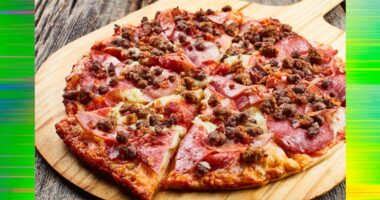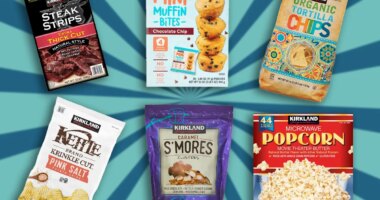When cancer runs in your family, it’s only natural to want to do whatever you can to mitigate your risk. Because the food we eat can have a direct correlation with the development of cancer or increased risk of cancer, it’s important to monitor your diet. Especially if you have family members who have had cancer, you’ll want to do what you can to lower your chance of getting it yourself, right?
In most cases, that means focusing on living a generally healthy lifestyle. For most, that could mean steering clear of certain foods almost entirely.
According to Brandy-Joe Milliron, PhD, associate professor in the Department of Nutrition Science at Drexel University, genes are only one small part of a “cancer risk profile.”
“If you have a family history of cancer, it’s important to know that only 5 to 10% of all cancer cases result from inherited genetic mutations,” Milliron says. “While certain gene mutations are linked to specific cancers, these mutations are relatively rare, and having them doesn’t mean a person will definitely get cancer. In fact, there are other lifestyle behaviors that not only have a bigger impact on cancer risk but are under our control. There is a lot we can do each and every day to reduce our risk for cancer.”
Whenever possible, Milliron recommends maintaining a balanced diet.
“This includes a diet rich in fruits, vegetables, whole grains, and healthy sources of fat,” Milliron says. “For example, the Mediterranean diet — characterized by high amounts of vegetables, olive oil, complex carbohydrates (high in fiber), lean meats (but not a lot of meat), and foods containing antioxidants — is consistently recommended.”
With all that in mind, here are the foods to never eat if cancer runs in your family, as they can contribute to your chance of getting cancer. (Related: Eating Habits to Lose Abdominal Fat As You Age, Say Dietitians.)
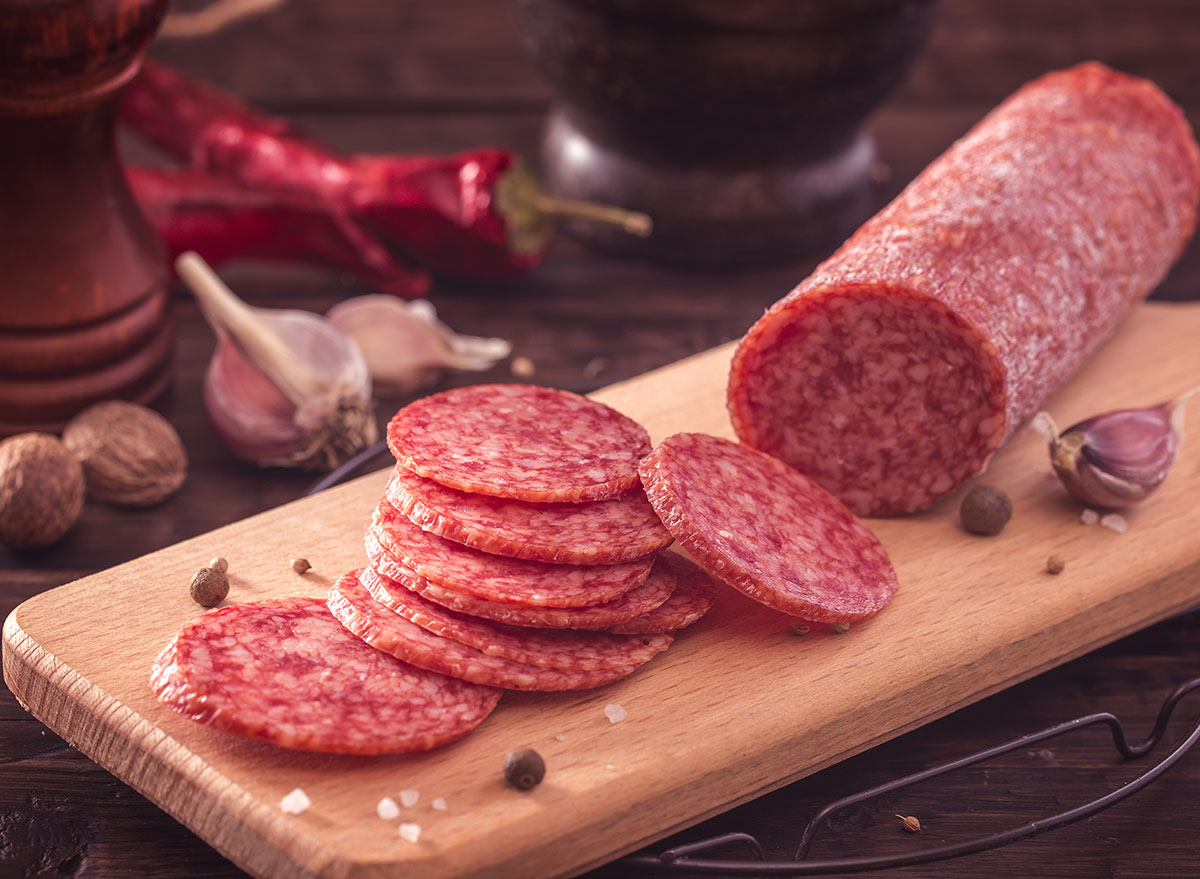

Processed meats are some of the worst offenders for increasing risk of cancer. According to the World Research Fund, processed meats — such as salami, for example — increase risk of bowel cancer. These meats are highly processed (hence the name!), which strips them of any of the natural nutrients they may have had. What you mostly get with salami and other processed meats is lots of fat and lots of salt. Oh, and increased cancer risk, too!
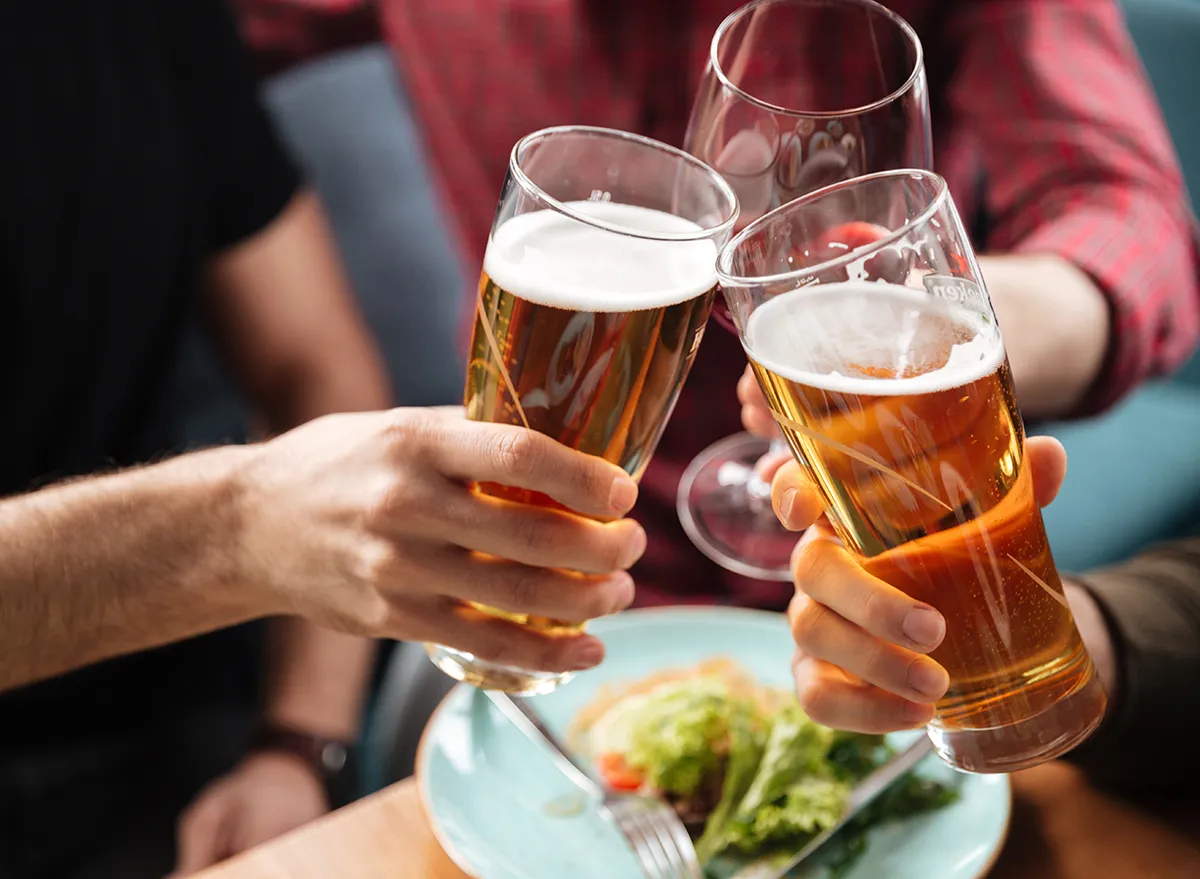

Love a cold brewski at the end of a hard day? We don’t blame you, but sadly, beer can increase your risk of developing cancer. It’s not just beer, actually — having three to four drinks a week has been linked to increased risk of breast cancer recurrence in women who had been diagnosed with early-stage cancer.
It’s not only a risk of recurrence, either. In 2012, 5.5% of all new cancers (and 5.8% of cancer-related deaths worldwide) were attributed to alcohol, according to the Journal of Clinical Oncology.
If cancer runs in your family, it’s best to avoid alcohol altogether. Not just in large quantities either — believe it or not, it’s the regularity that exacerbates cancer risk. The more frequent the habit, the higher the increase of risk.
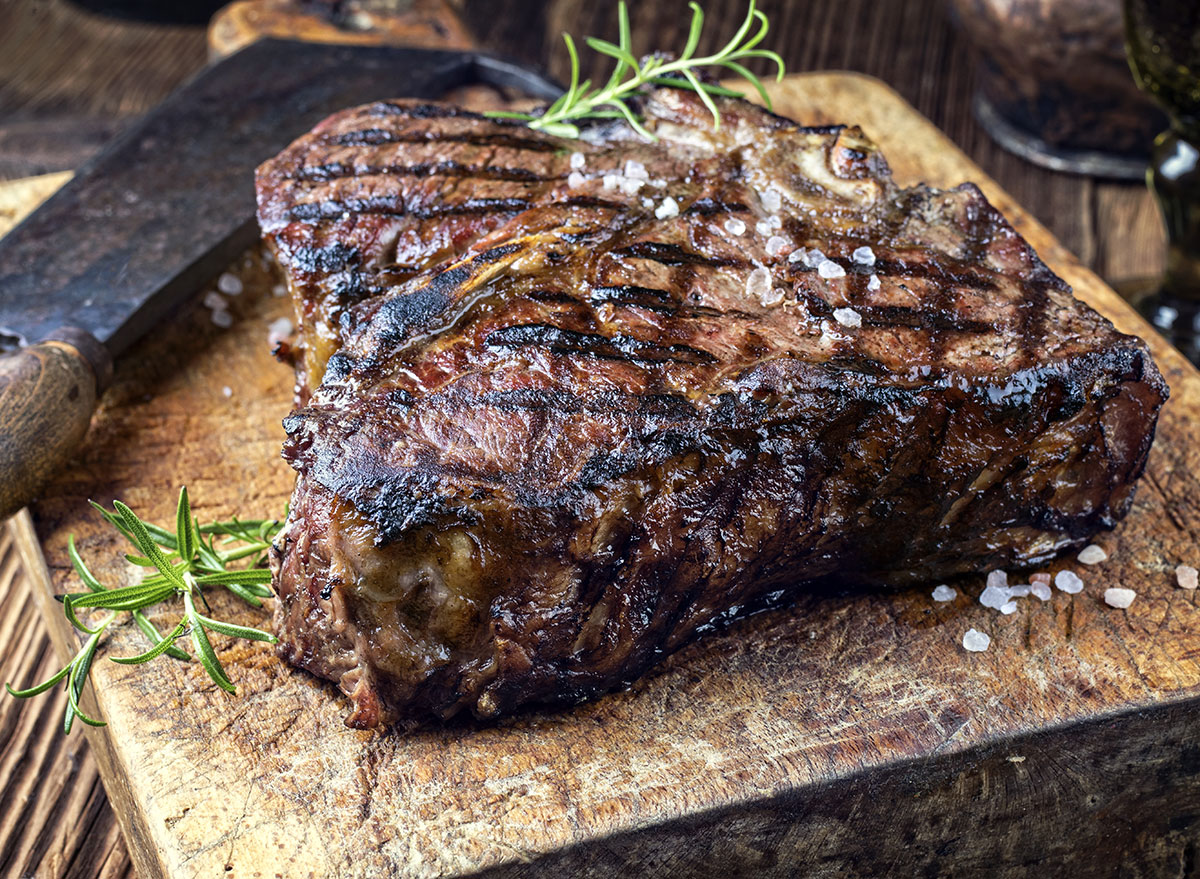

There’s nothing like a thick slab of New York strip. Unfortunately, it’s not that great for you — sorry about this one! Especially if you have a family history of cancer, it’s just not worth the risk. Consuming red meat increases risk of colon cancer, according to the World Cancer Research Research.


We all know that eating a ton of salt can increase your risk of heart disease, but did you know it also affects your risk for cancer? The World Cancer Research Fund International has found “strong evidence” that salt and other high-salt foods are a cause of stomach cancer.
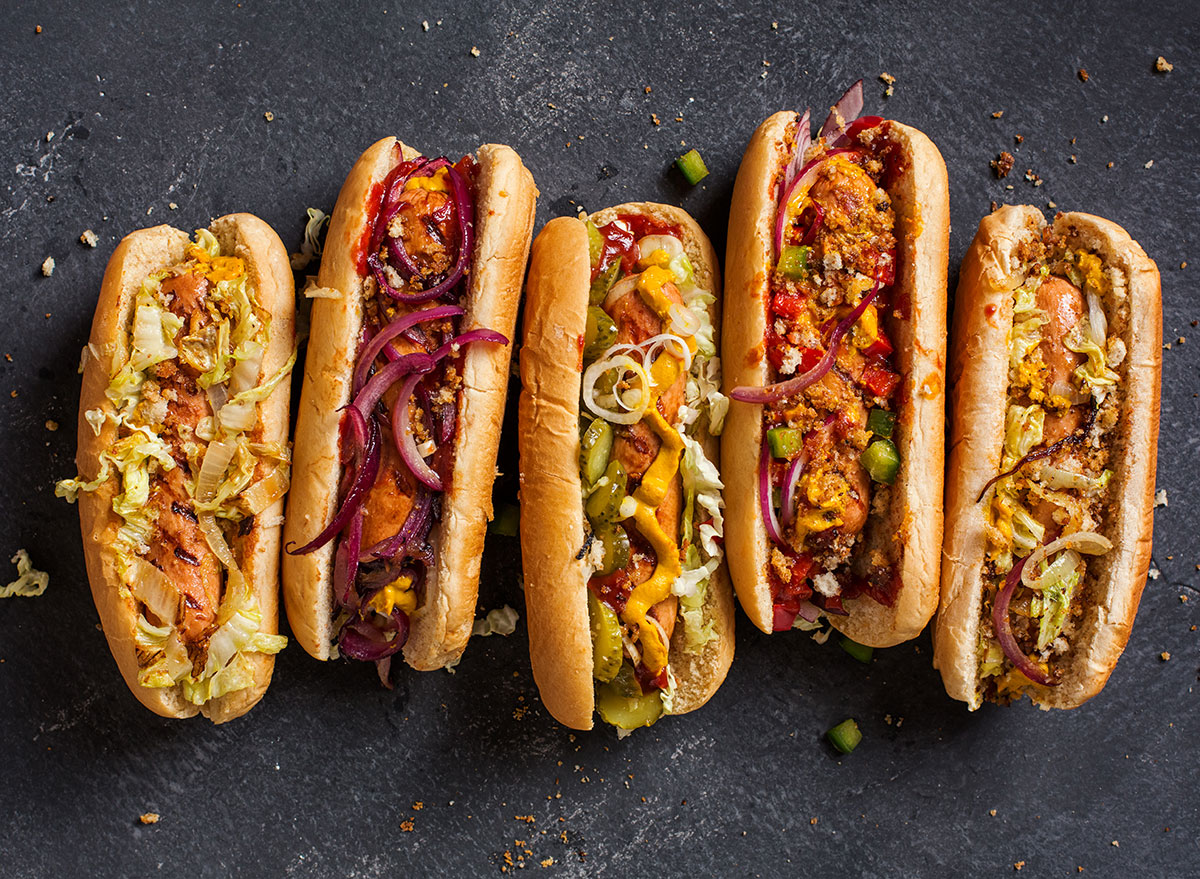

It may be a staple of baseball games and other sporting events, but if members of your family have been diagnosed with cancer, stay away. Hot dogs are a type of processed meat that’s high in both fat and salt, which only spikes your risk of developing cancer.
“There are compounds in processed meat that are produced when meats are smoked, cured, or when nitrates and nitrites are added,” Milliron says. “These compounds have been linked to an increased risk for certain types of cancer.”
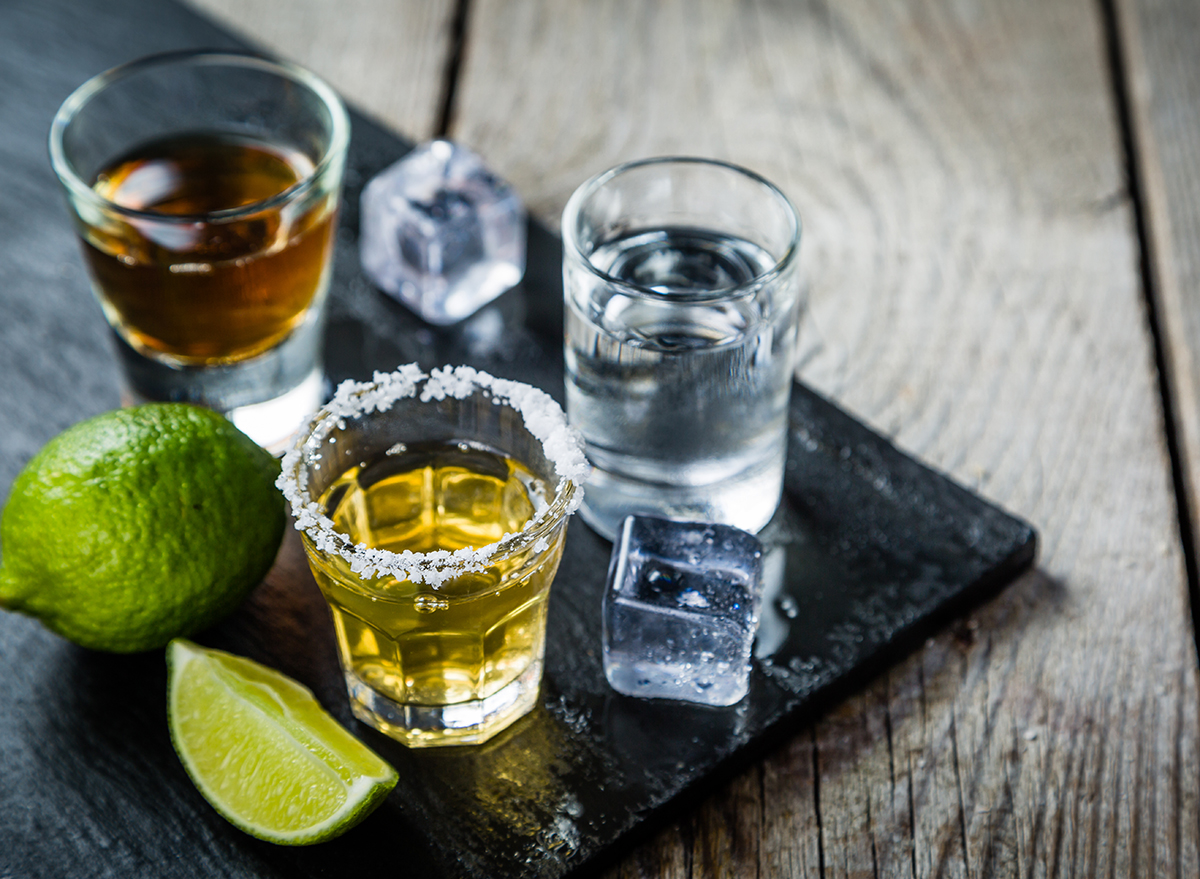

Any type of alcohol increases your risk of developing cancers, like breast cancer, for example. The more frequently you drink, the more your risk goes up. If you can, limit how frequently you drink hard liquor (and other alcohols) throughout the week.
“If you do drink alcoholic beverages, consider the following two important factors: amount and frequency,” Milliron says. “The American Heart Association, American Cancer Society, and the U.S. Department of Health and Human Services all recommend that men drink no more than two drinks per day, and women consume no more than one drink per day.”
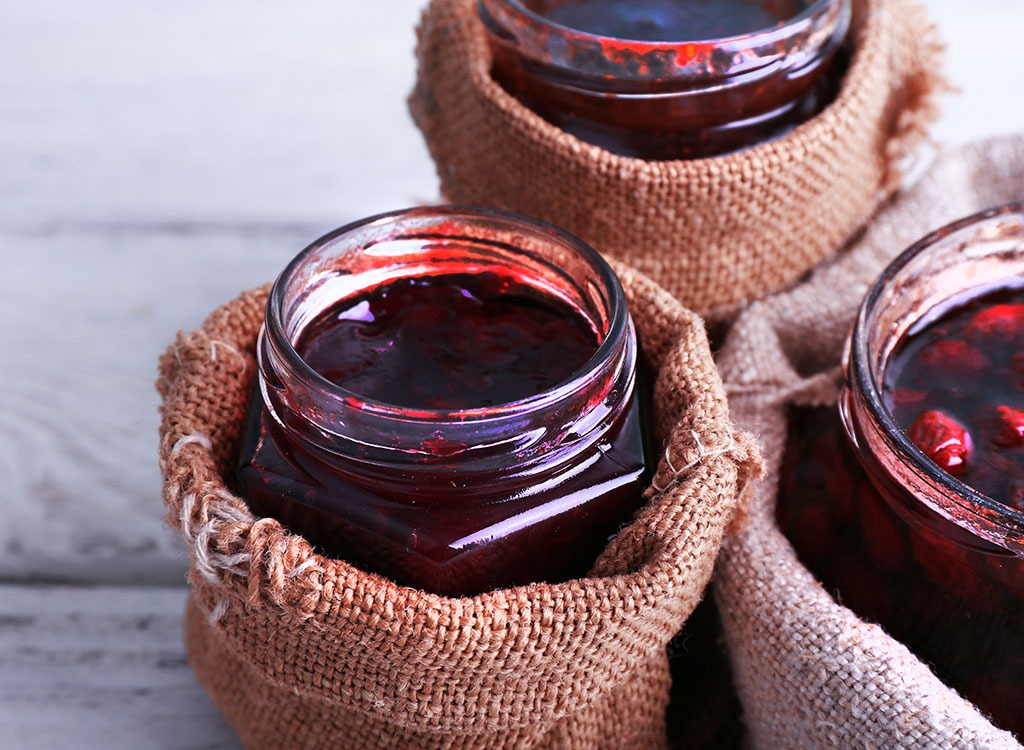

Now before you panic, not all jams are potentially harmful — only ones preserved in salt. As high sodium intake increases risk of developing stomach cancer, any kind of food that has sodium as an added preservative is probably something people with a history of cancer in their family should dodge.
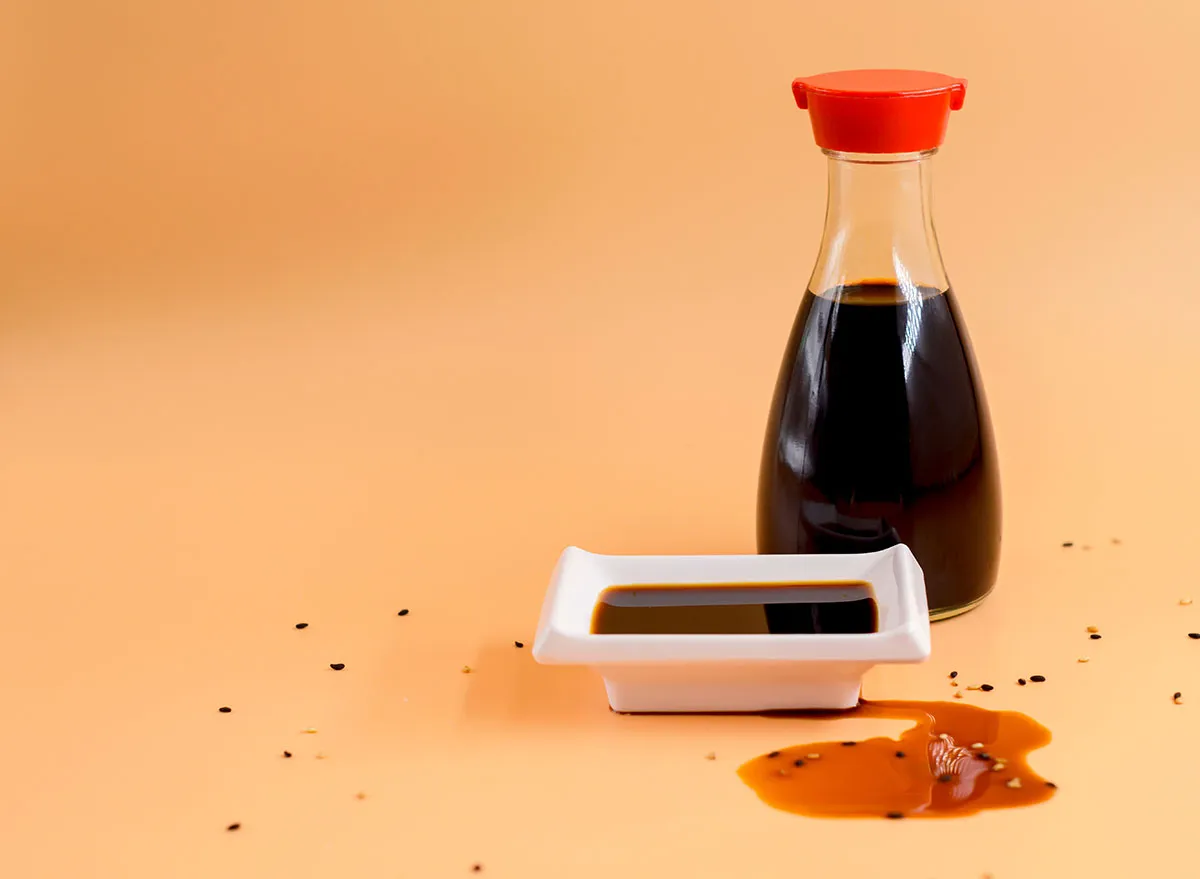

Soy sauce may be delicious — especially with sushi or hibachi — but did you know a hearty helping of soy sauce is mainly just a hearty helping of sodium?! In fact, one tablespoon of soy sauce can have as much as 1,000 milligrams of sodium, which, yes, is twice the amount of sodium the average person should have.
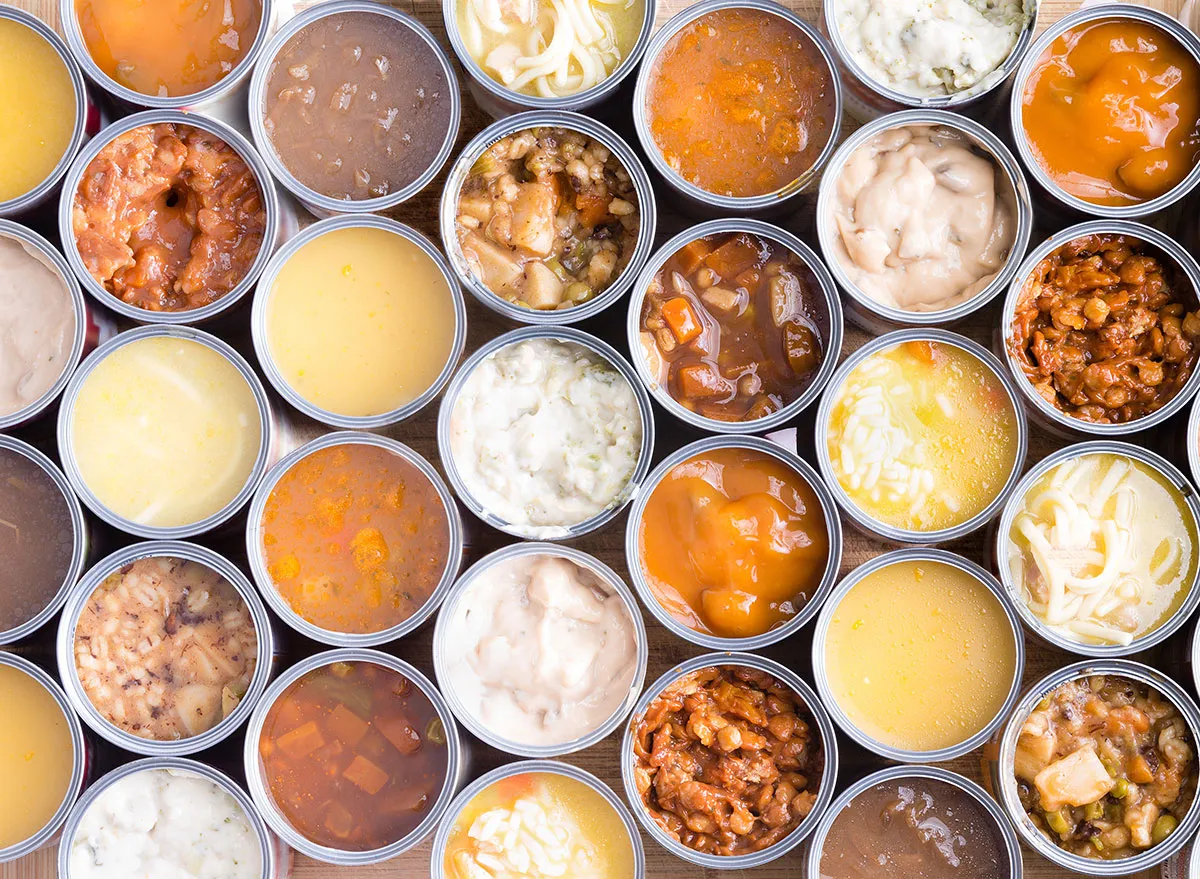

You may have heard this before, but canned or pre-packaged soups are notorious for having high sodium levels. Since sodium is linked to the development of stomach cancer, high-sodium soups should be avoided, according to the World Cancer Research Fund International.
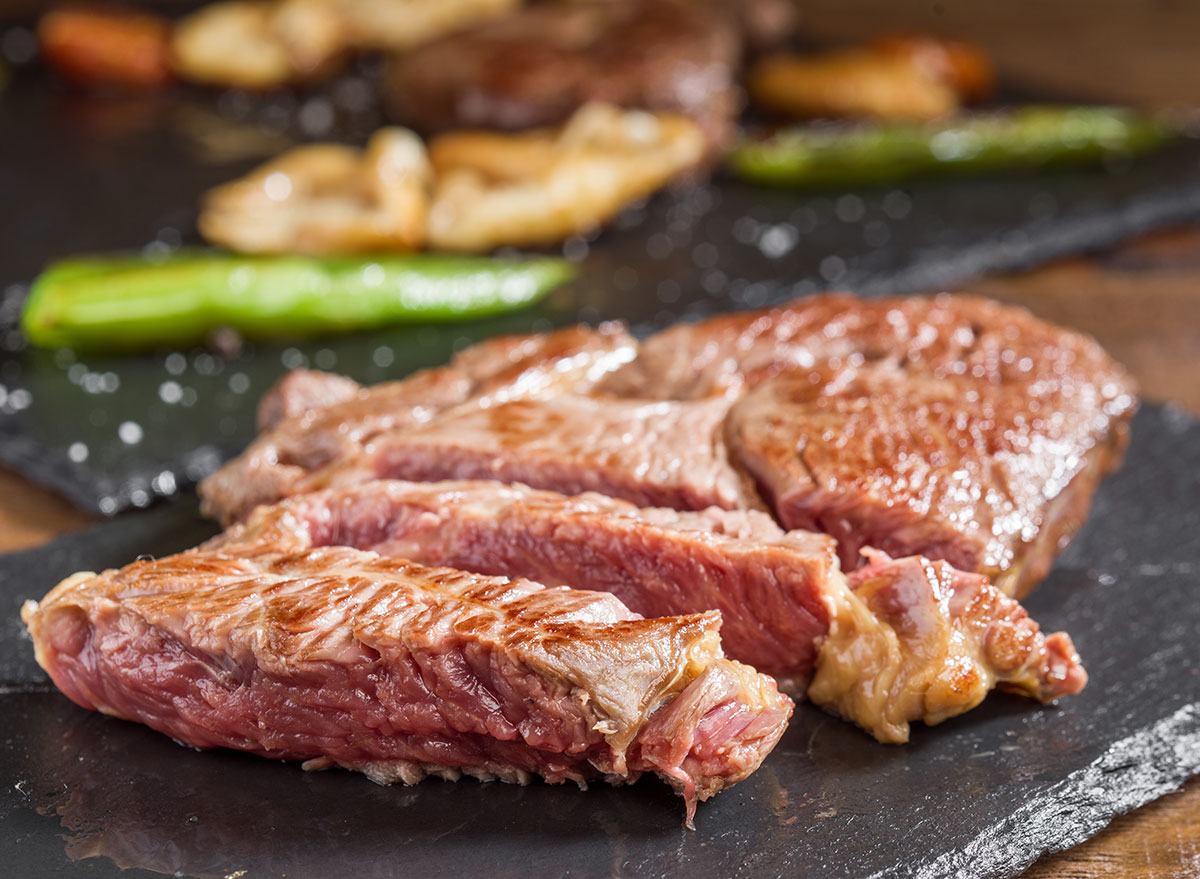

Even if you’re thinking, “Um, I never eat horse meat,” bear with us. You never know! It may not be as common as some of the other items on this list, but horse meat is categorized as a red meat. Since the World Cancer Research Research says eating red meat increases risk of colon cancer, it’s best to steer clear.
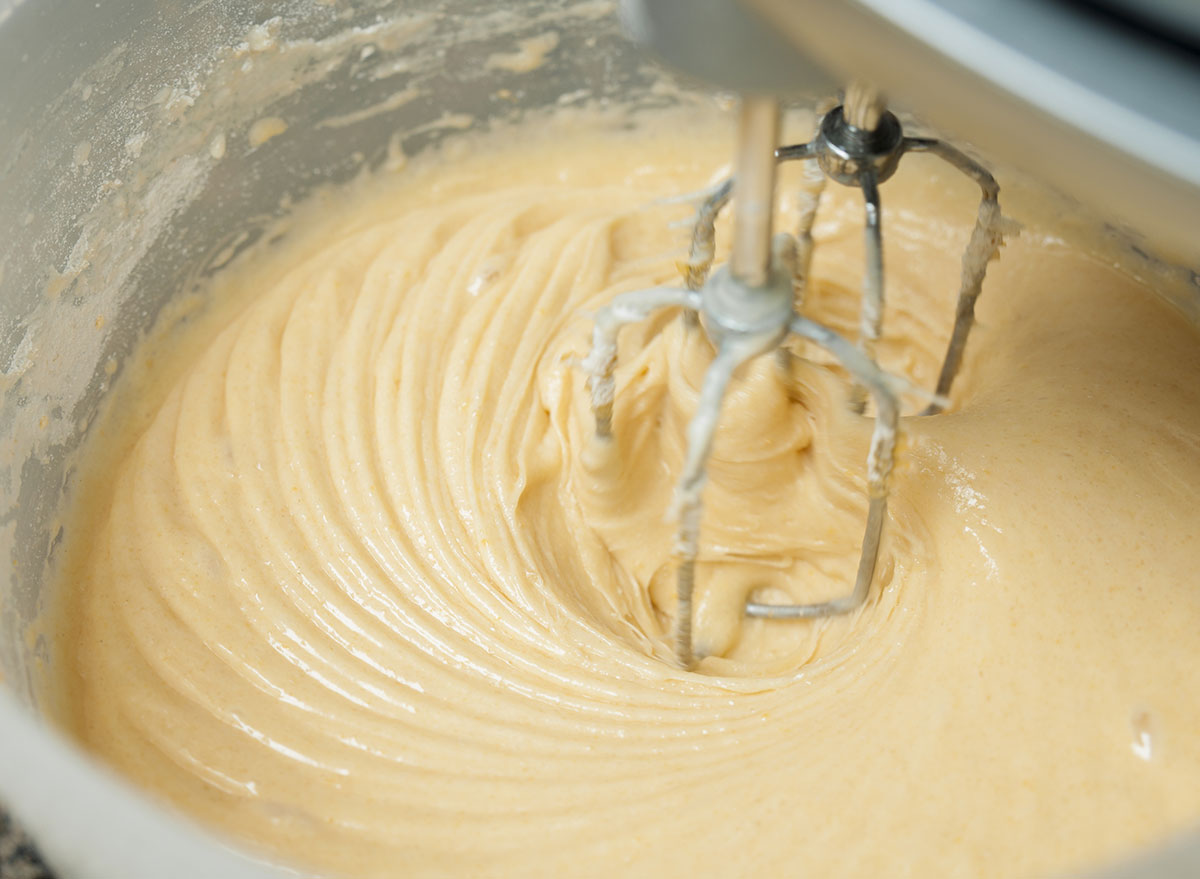

Hear us out — not all pancakes are necessarily no-go’s, but if you’re used to buying pre-made pancake mixes, it might be time to stop. Making your own mix from low-sodium baking powder is a better option for people predisposed to cancers. This is because foods with high sodium can cause stomach cancer. Shockingly, pre-made pancake mixes are often some of the biggest culprits of high sodium levels. In fact, they can have up to 800 milligrams of sodium — about 300 milligrams more than what’s necessary.
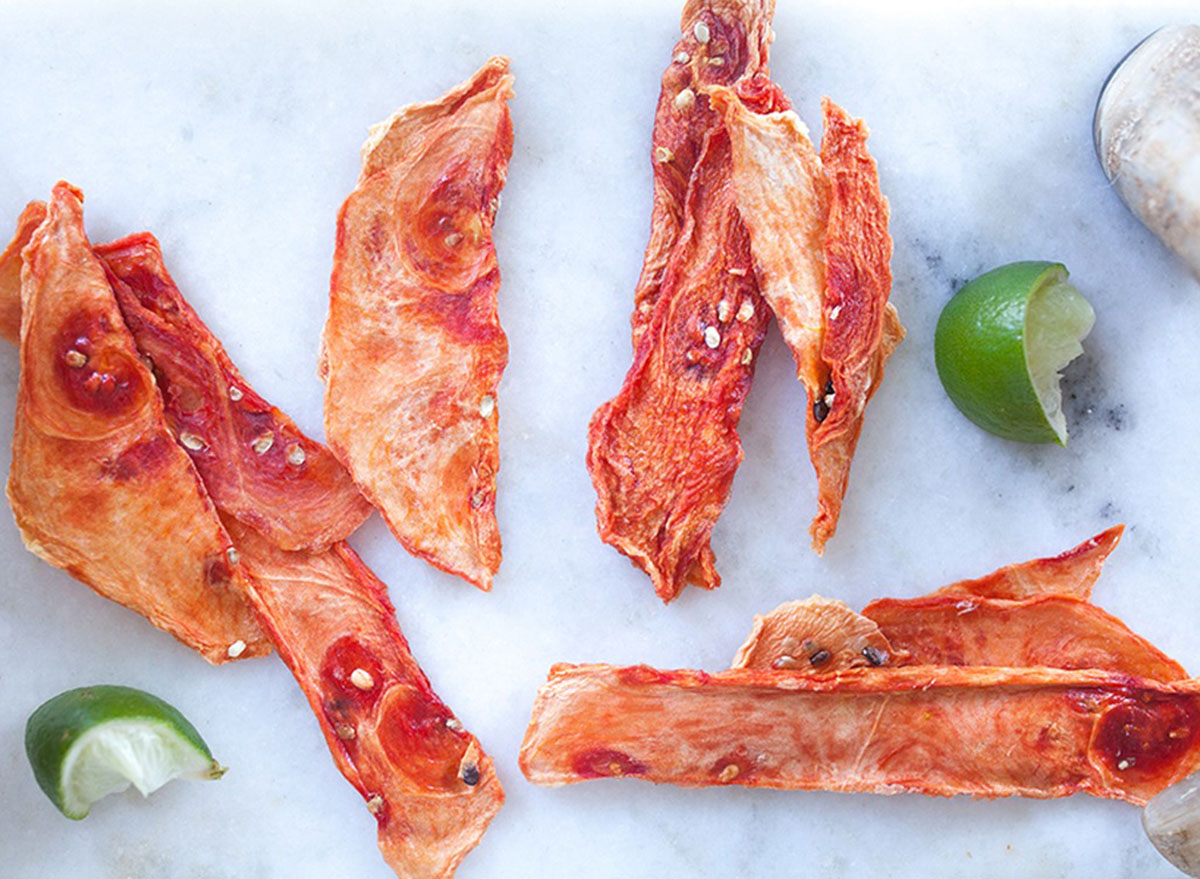

Jerky may be a yummy, high-protein snack, but it’s still a processed meat. Like other processed meats, jerky has been linked to increased risk of developing of colorectal cancer.
“The most convincing research suggests that eating processed meats increases a person’s risk for colorectal cancer,” Milliron says. “Inconsistent evidence has linked consumption of processed meats to other gastrointestinal cancers, breast, and prostate cancers.”
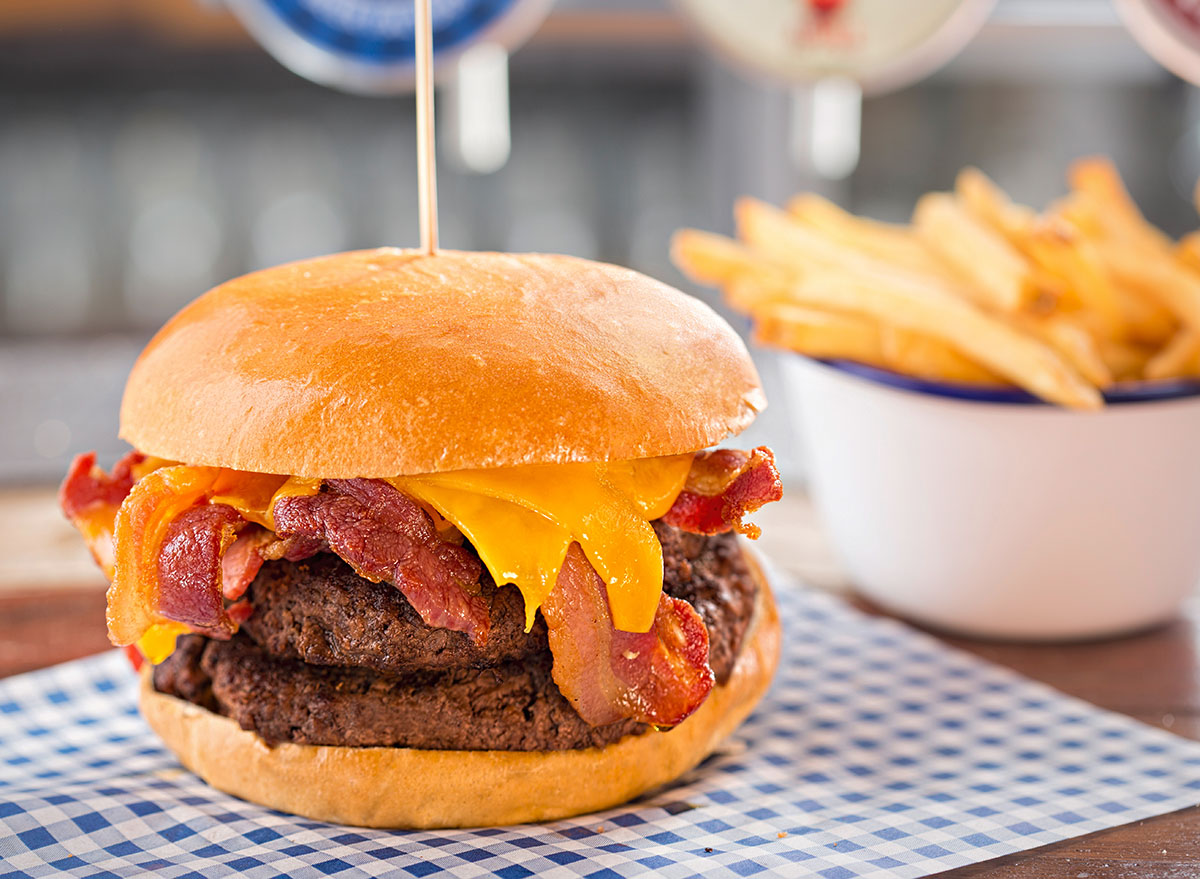

This is why we can’t have nice things. Yep, even beef! Burgers, rump roast — it’s all considered red meat, and red meat has been definitively linked to an increased risk in colon cancer. You may want to limit your intake of beef (and other red meats) to less than 500 grams a week, the World Cancer Research Fund suggests.
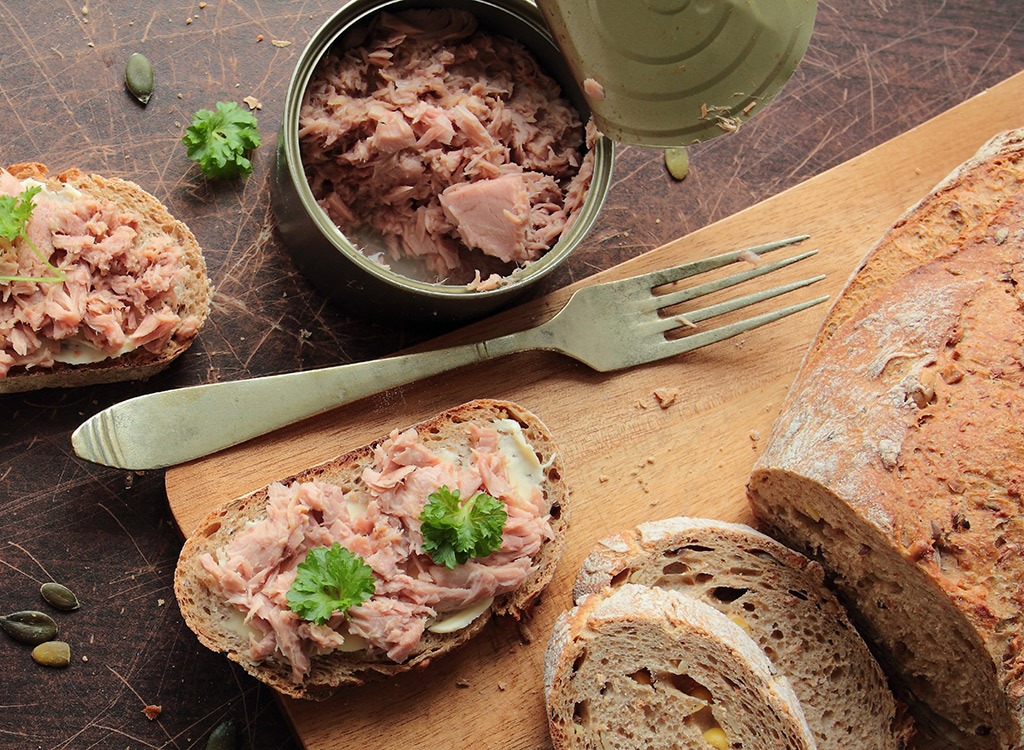

Whenever possible, skip the tuna fish and other canned fish. There’s typically a lot of salt infused in these seafood options, and fresh is always better.
Fresh tuna, fresh salmon, and fresh halibut are all excellent sources of seafood-based protein that are significantly lower in sodium. That’s better for your blood pressure, cholesterol, and ultimately, decreased cancer risk.


Historically, we’ve been told that calcium is important for a healthy, balanced diet. (Those #GotMilk commercials, anyone?) But years later, we’re learning that may not be the case. According to the National Cancer Institute, some studies have shown that a diet high in calcium could contribute to increased risk of prostate cancer, but the data is inconsistent.
“In the Harvard Physicians health study, 20,885 physicians consuming 2.5 servings of dairy per day saw a 34% increase in prostate cancer,” Dr. Gonzalez says. “A repeat study of 47,781 physicians showed an even higher risk. There is also evidence of dairy being implicated in an increased risk for ovarian cancer. Why? It goes back to hormonal stimulation and cancer cell growth.”
That being said, some studies show that high-calcium diets can decrease risk of colon cancer. In general, most foods high in calcium are types of dairy, so it’s best to avoid foods like cheese and cow’s milk.
“Cancer is often linked to inflammation, and so I would recommend avoiding inflammatory foods,” says Dr. Latisha Rowe, Family Medicine Physician in Houston, Texas, and founder of national telemedicine network The Rowe Docs. “I would recommend avoiding dairy and processed meats. A plant-based diet with plenty of whole grains is best.”
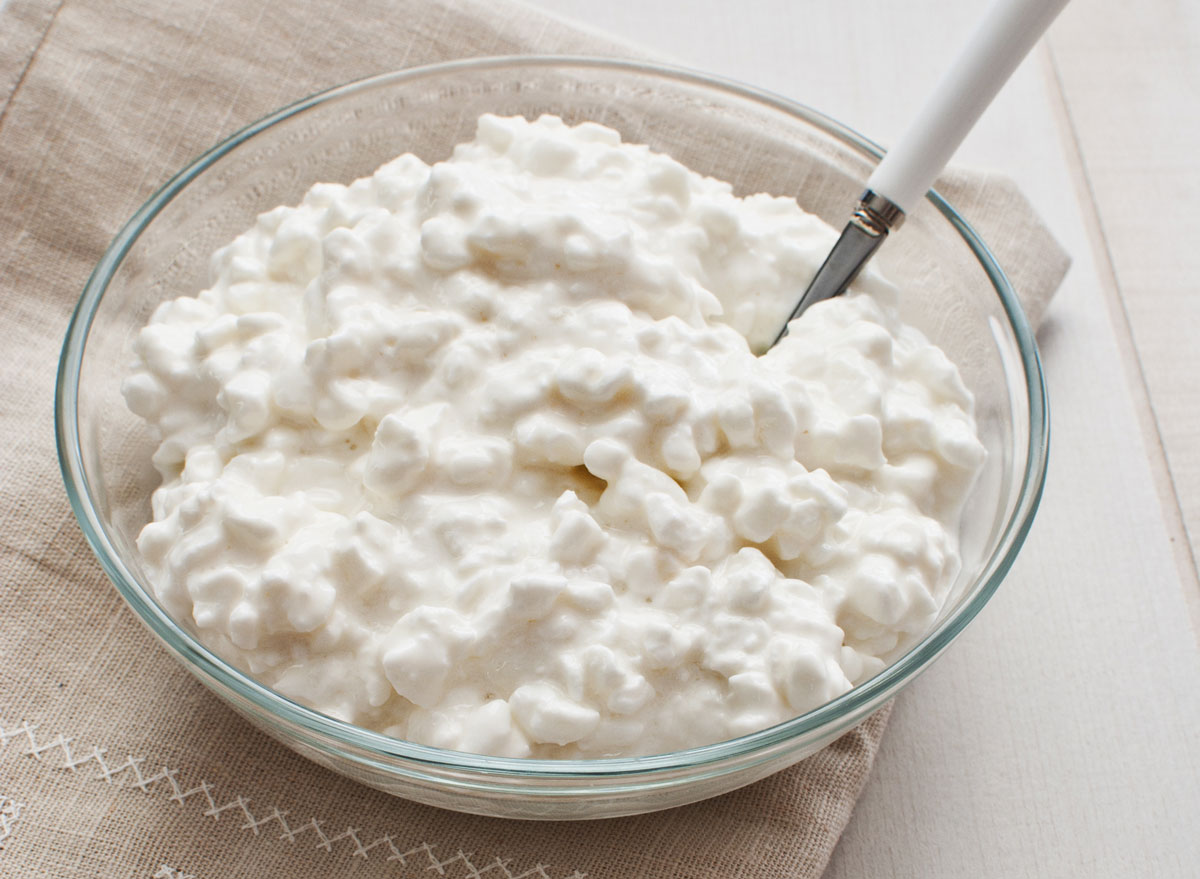

In general, cheese is often highly processed. While it’s best to avoid most dairy products altogether, cottage cheese can be particularly egregious when it comes to cancer. That’s because it is highly processed, which means it can have more sodium content than some other cheeses.
“Conventional cows are not only fed GMO feed (which alters the fatty acid profile we ingest to pro-inflammatory), but they are given antibiotics (which disrupts our gut bacteria) and injected with Monsanto’s rBGH, an artificial growth hormone banned in 27 countries that has been shown to stimulate IGF-1 (insulin-like growth factor), which significantly increases the risk of certain cancers,” Dr. Gonzalez says.
See cottage cheese in the supermarket? Keep walking.
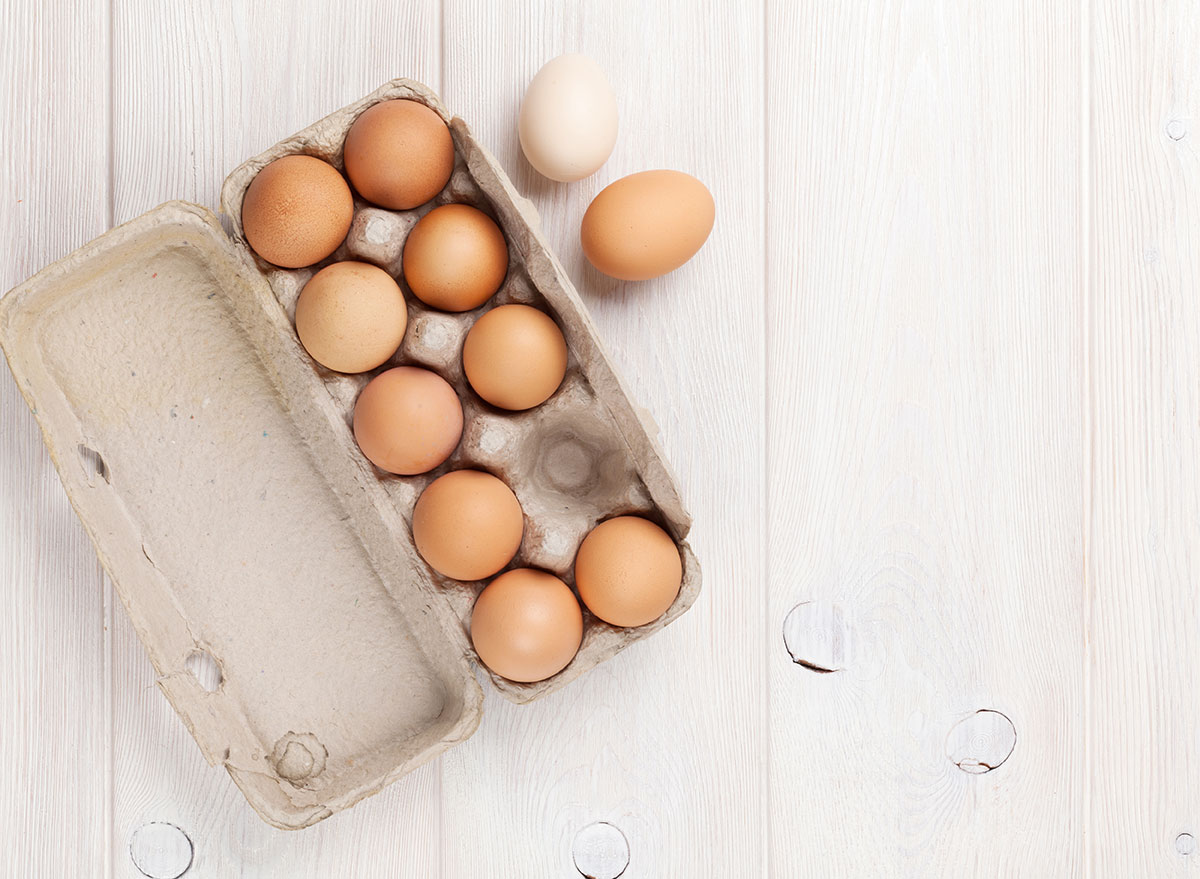

In general, all types of poultry put you at risk for developing cancer. Apparently, that also includes eggs. According to a study by Cancer Prevention Research, men who consumed 2.5 eggs or more per week showed an 81% increased risk of prostate cancer.
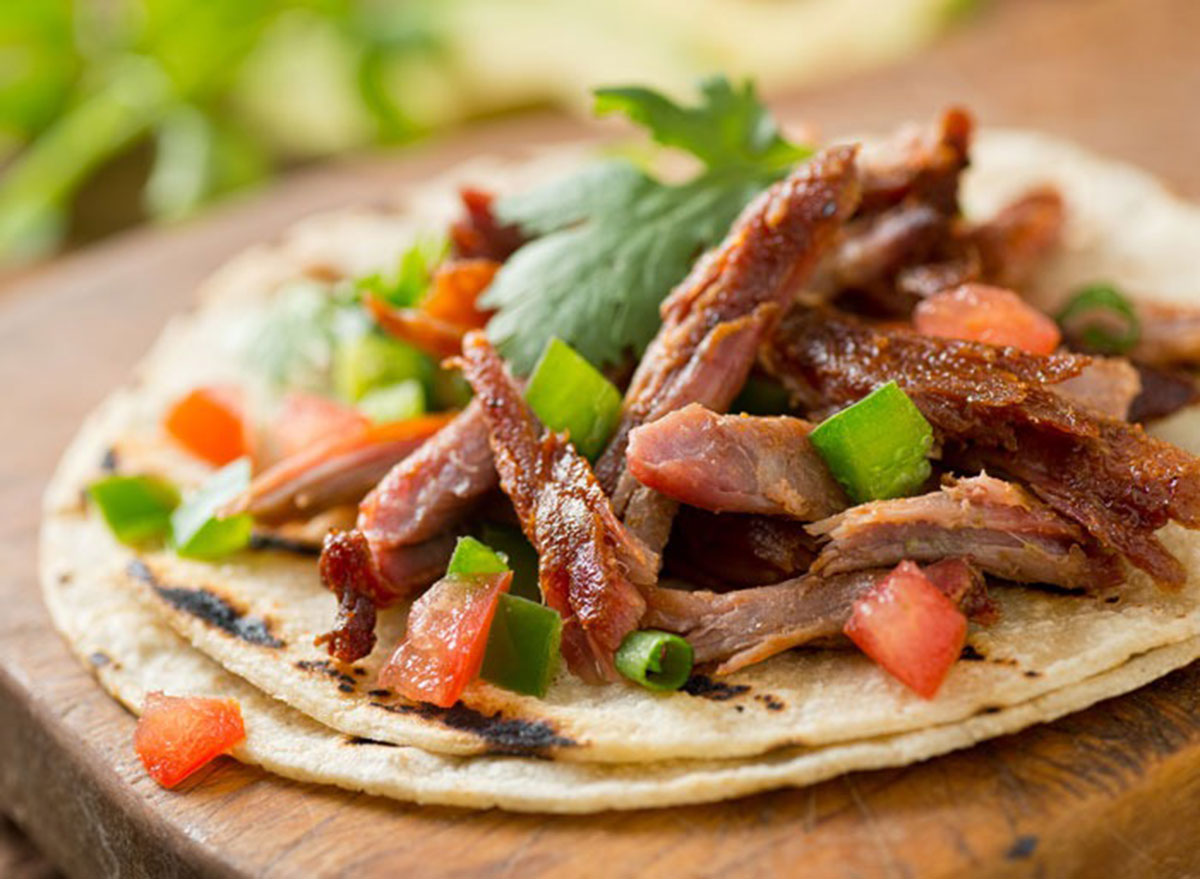

If you are noticing a pattern here, it may be that red meat, all in all, isn’t the best for decreasing your risk for cancer. Red meat features important nutrients like protein, B12, iron, and zinc. But if you are predisposed to cancer, eating red meats like pork might not be worth the risk. You can get these vitamins elsewhere.
“Particularly, cooking red meat at high temperatures, such as when smoking or grilling meat, can also produce cancer-causing compounds,” Milliron says.
Pulled pork, pork chops, and pork belly may be delicious, but it’s in your best interest to limit your intake.
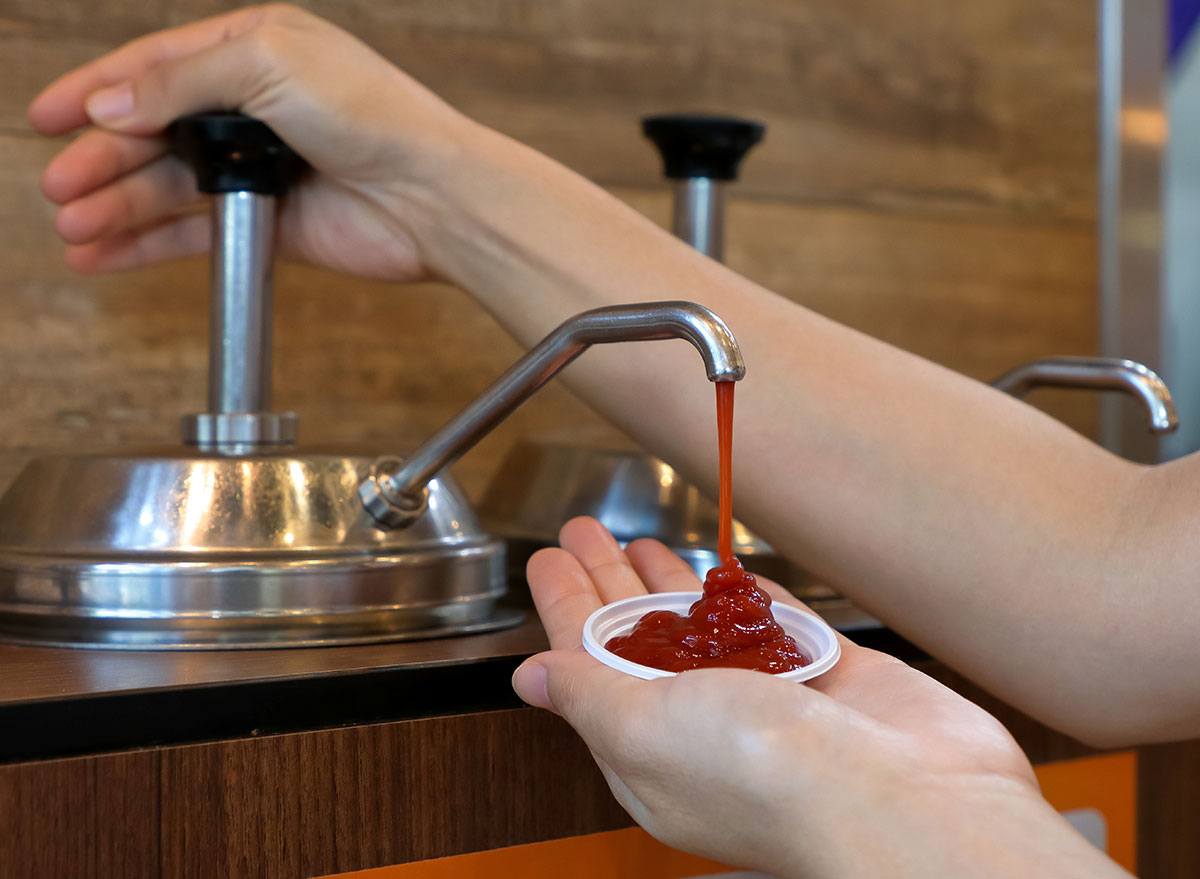

But what are you going to put on your fries from now on? Ketchups can be high in sodium — some as much as 150 milligrams. That might not seem like a lot, but it adds up quickly throughout the day. There are some other healthier dipping options out there for your fries. Anything homemade, for example, is less likely to have as much sodium or other additives.
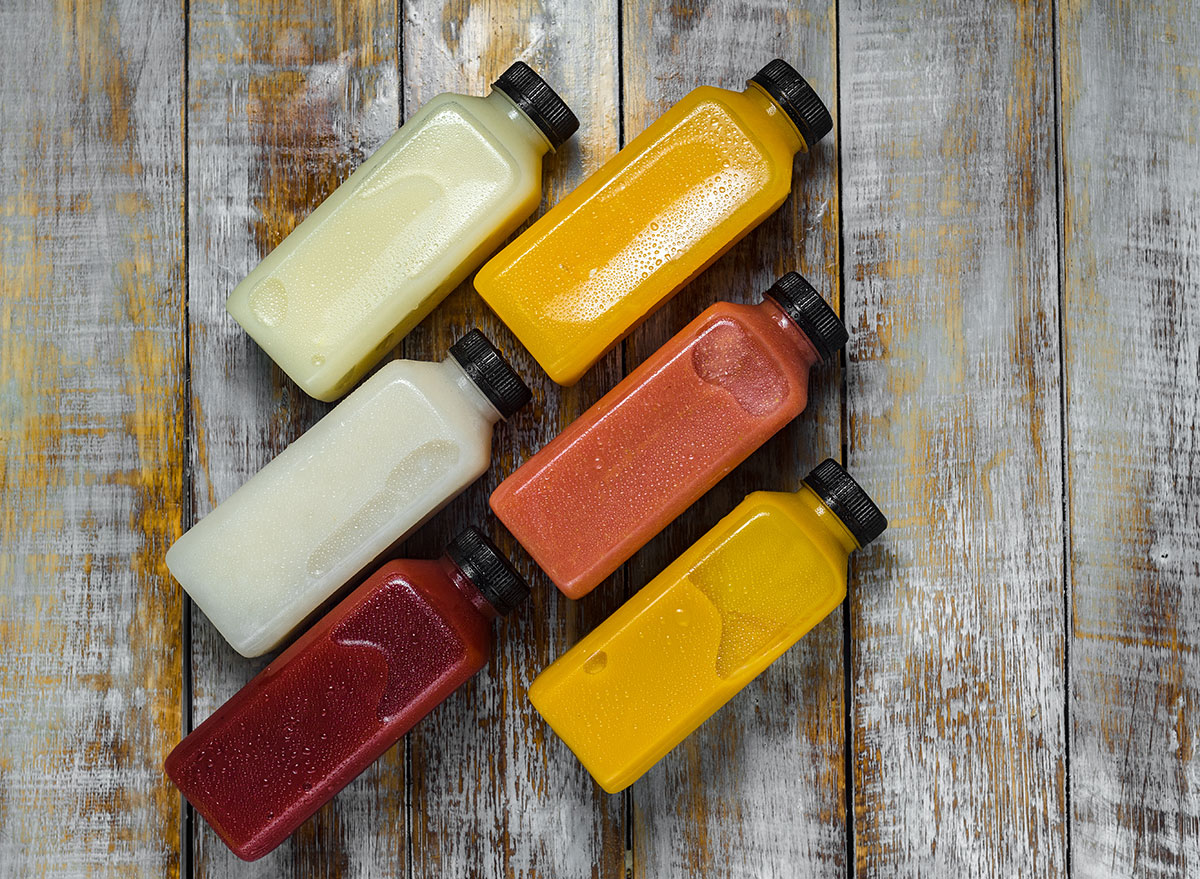

Um, what?! Aren’t vegetables supposed to be, well, healthy for you? Yes, of course, but vegetable-based juices aren’t always “healthy” if they’re heavily processed and have additives and other preservatives added. Veggie juices can actually be super high in sodium, which can cause stomach cancer. You’re better off squeezing your own veggie juices at home. No preservatives or additives that way!
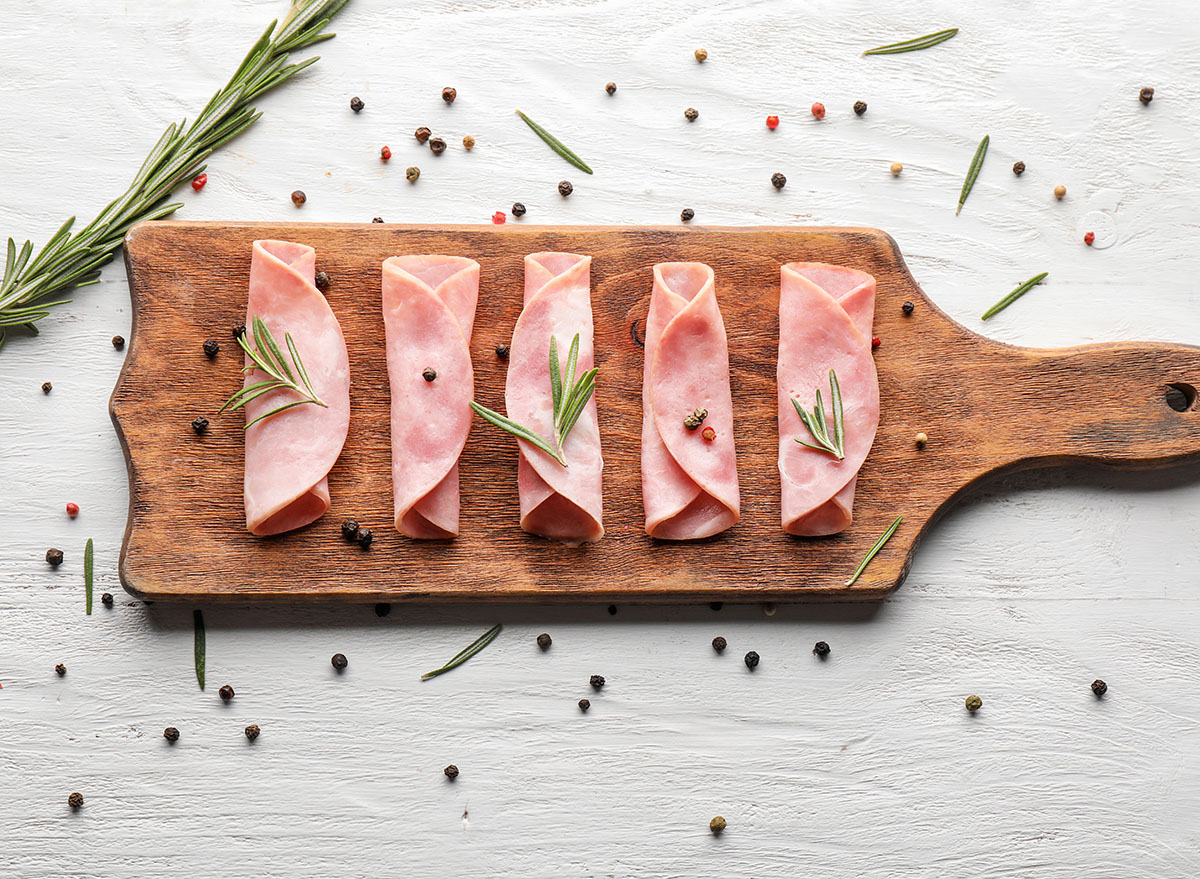

#ProcessedMeat. Yep, ham isn’t great for us either, especially if you already have an increased risk of cancer due to family history. Your best bet? Avoid it if possible.


Generally, studies have shown that fish can actually protect the body against cancer. However, fried fish can actually increase your risk of cancer, as the act of frying decreases the fish’s natural omega-3 content. The frying process also releases trans-fatty acids, Heterocyclic Amines (HCAs), and oxidized lipids, all of which could increase risk of cancer, including breast, colorectal, esophageal, liver, ovarian, and pancreatic.
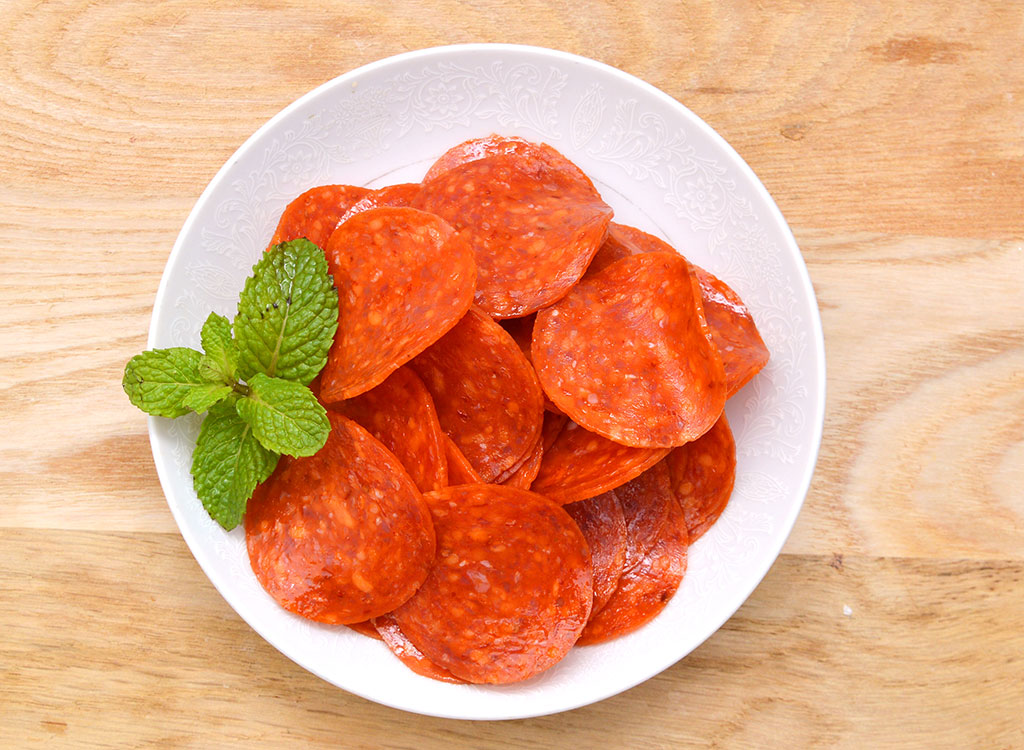

Delicious as a pizza topping (or by itself, honestly!), but good for our risk of colorectal cancer? Unfortunately, no. Pepperoni is another kind of processed meat that should be avoided.
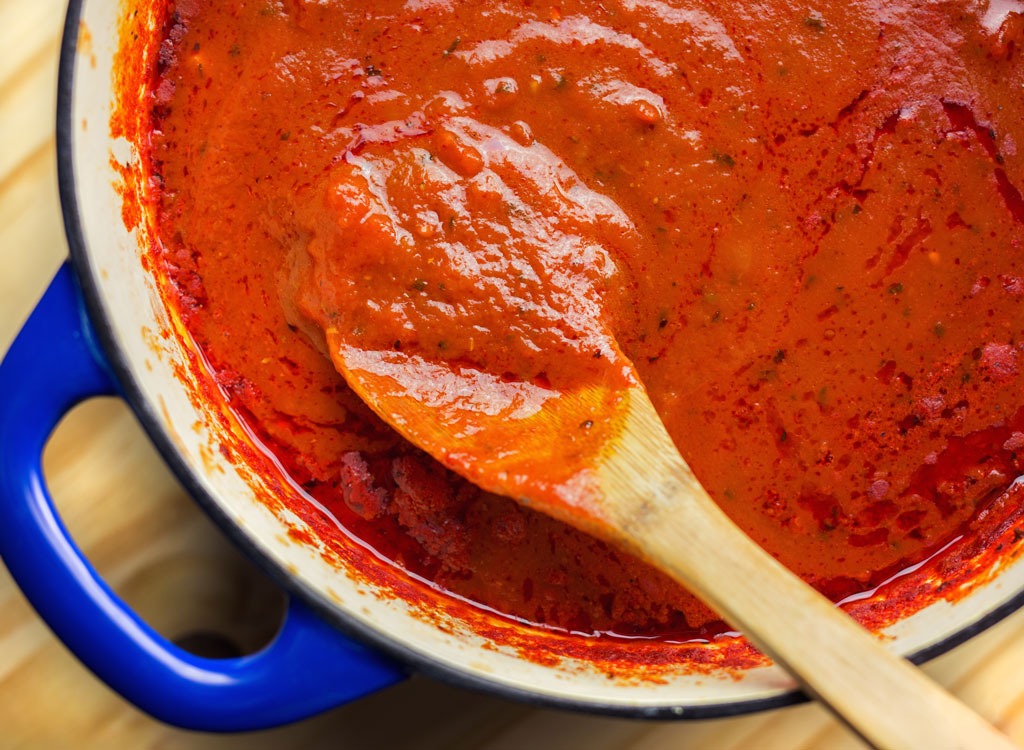

Ugh, say it isn’t so! Sadly, marinara and other kinds of pasta sauces could have high levels of sodium. In fact, one cup of spaghetti sauce can have as much as 1,000 milligrams of sodium. And as we know, high levels of sodium are linked to stomach cancer. Make sure to check the nutritional facts of your pasta sauce before buying. The less sodium, the less increased risk of cancer!
Can’t quit the pasta? Try a healthier alternative to sauce. You can make your own with plum tomatoes, garlic, and basil. Or just toss your spaghetti with olive oil!
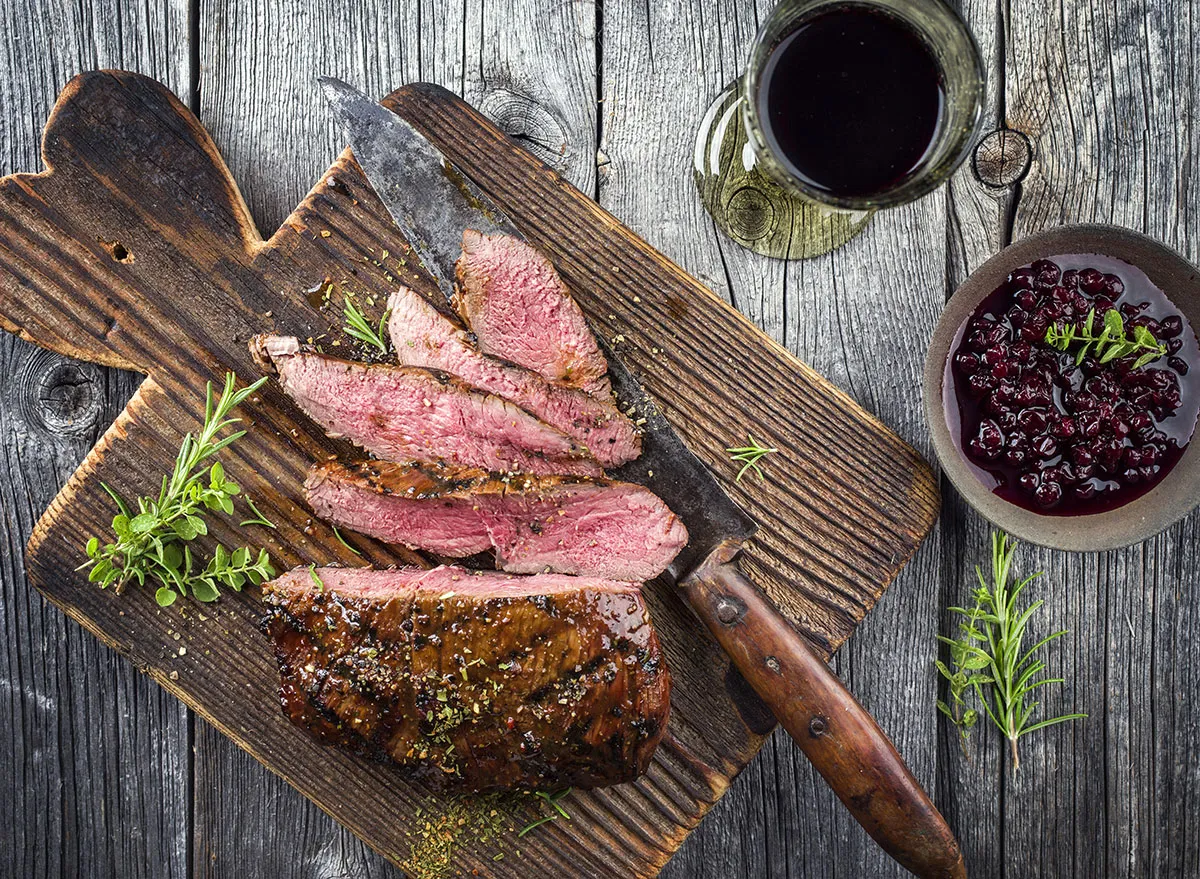

There may be some debate about whether or not venison — aka deer — constitutes as “red meat,” but when it comes to cancer, it’s certainly categorized as such. Meaning that, yes, eating venison meat can also increase your risk of bowel cancer. This type of meat should be avoided — or at least limited — when it comes to your diet.
READ RELATED: Justin Bieber Reveals Facial Paralysis, Calls It "Serious" Condition
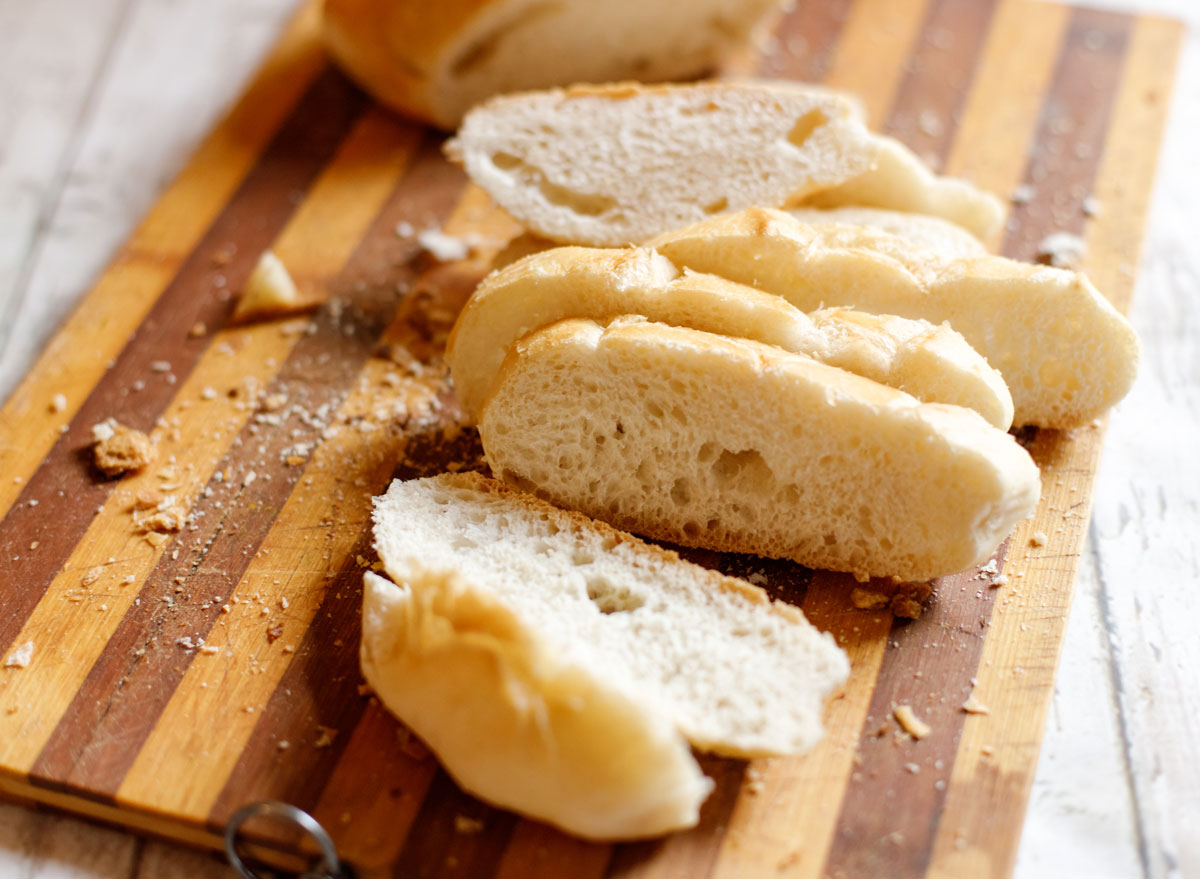

We’ll never get over this one. But sadly, there are some breads that are heavily processed, which means they’re pumped full of additives, preservatives, and salt. Since salt increases risk of stomach cancer, it’s important to check the nutritional value of bread when buying it.
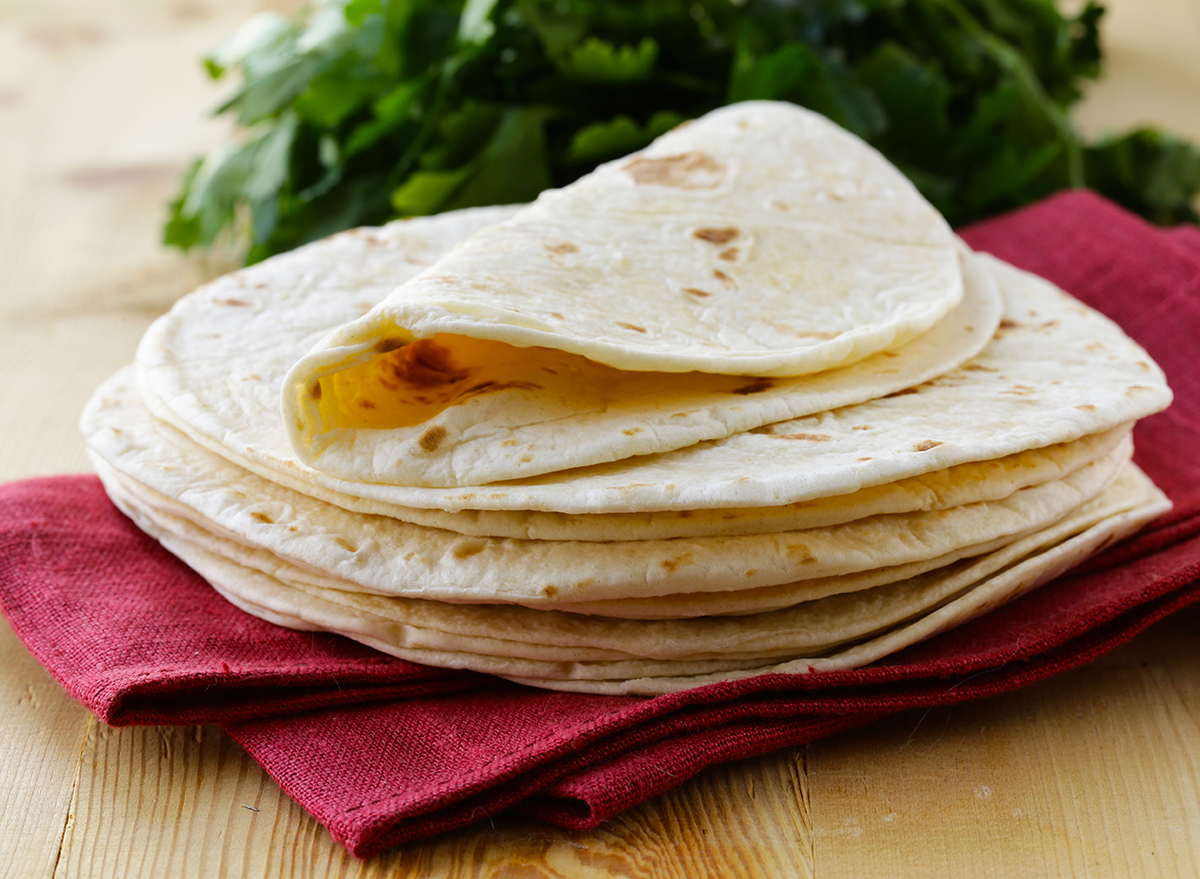

Sadly, tortillas are included in the “bread” category. Since some tortillas can have more than 200 milligrams of sodium, it’s really important to check the nutritional facts. If you can’t cut tortillas out of your life, opt for plain corn tortillas. These generally contain less sodium and are veggie-based instead of flour-based. Already, that’s better!
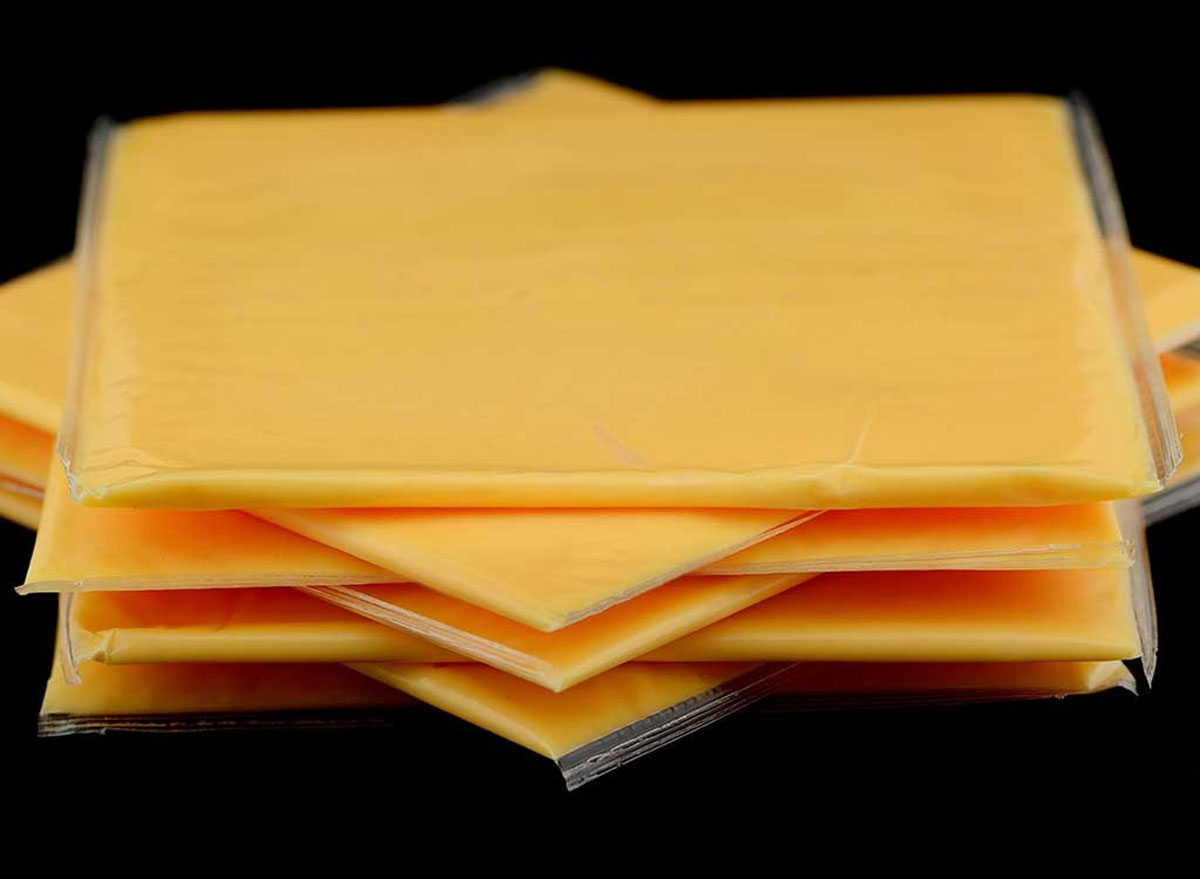

It may have a lot of calcium and vitamin D, but the sodium content just isn’t worth it. After all, American cheese is one of the most highly processed cheeses — and ultimately foods — out there. A slice (or two!) of American cheese might be delicious on grilled cheese. But ask yourself, “Is all that processing and sodium worth the increased cancer risk?”
If you have an undeniable need for cheese, opt for a version that’s significantly less processed like fresh mozzarella or Swiss cheese.
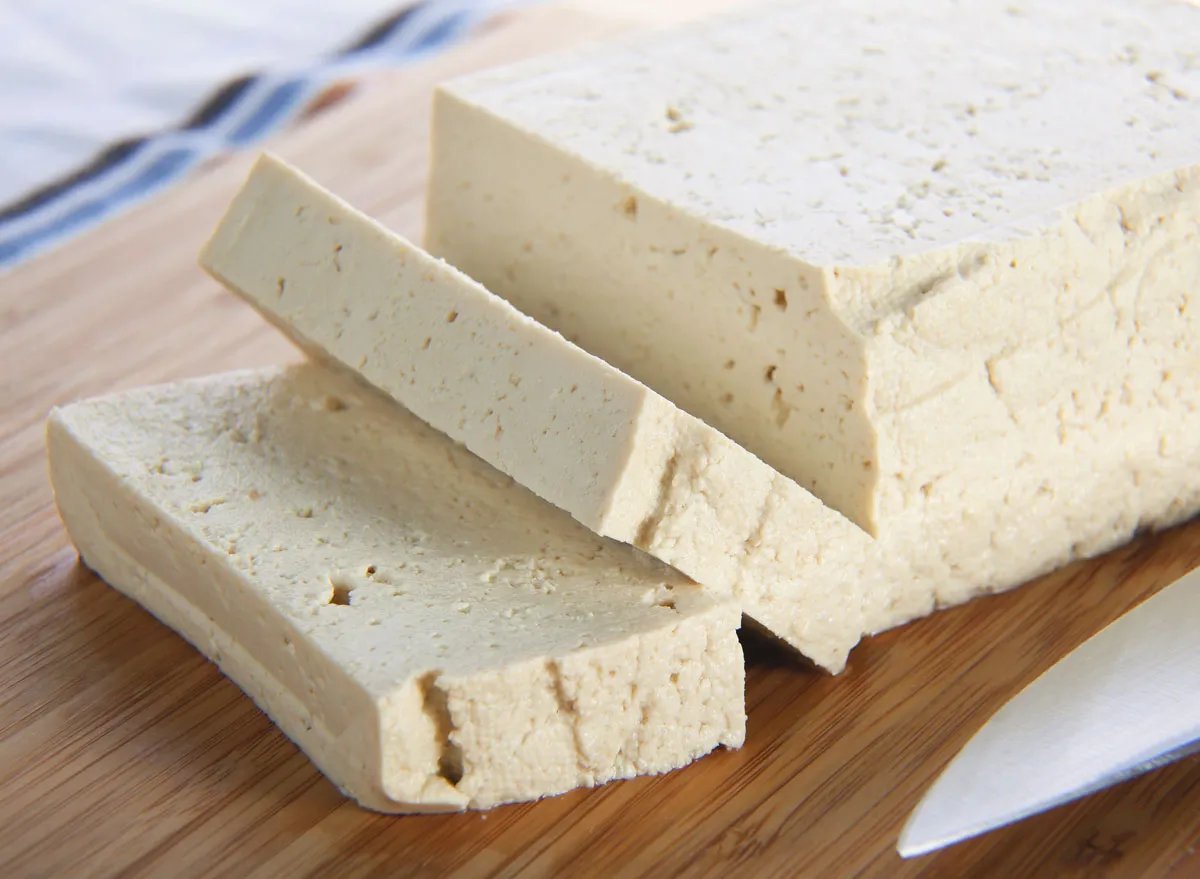

There’s a lot of conflicting information out there about the relationship between soy and cancer risk, but since some studies have found a link between high-soy foods and cancer, so it’s best to steer clear.
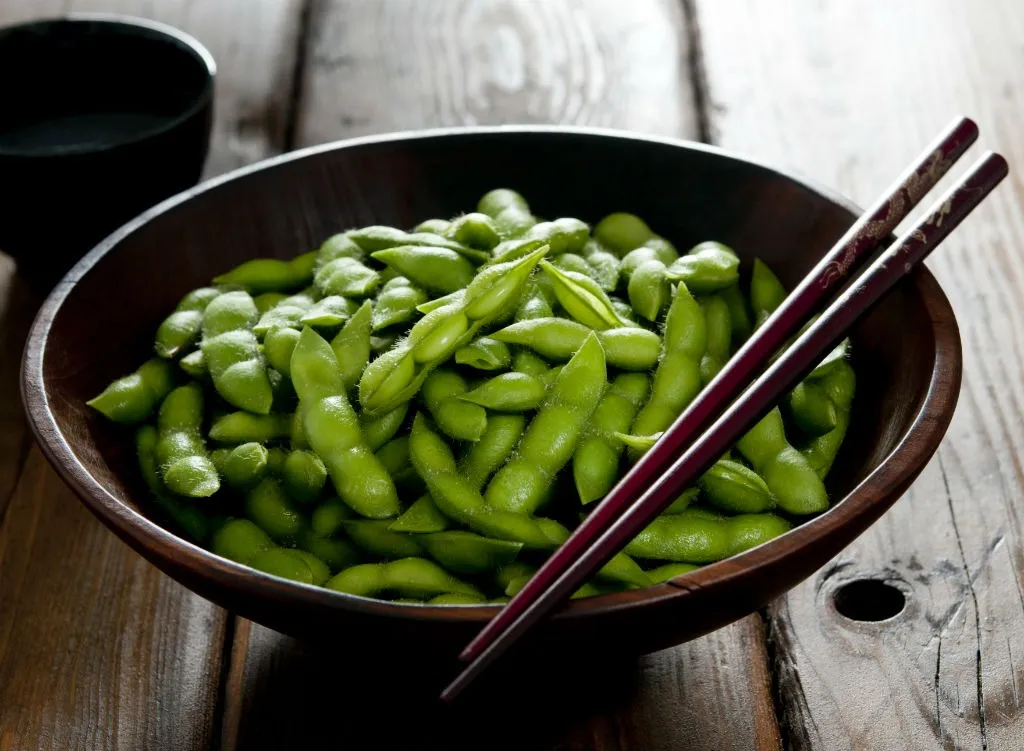

Also high in soy, edamame might be another food to avoid if you have a family history of cancer. Because the relationship between soy and breast cancer risk is still highly undetermined, whenever possible, give soy items (like edamame, for example) the cold shoulder.
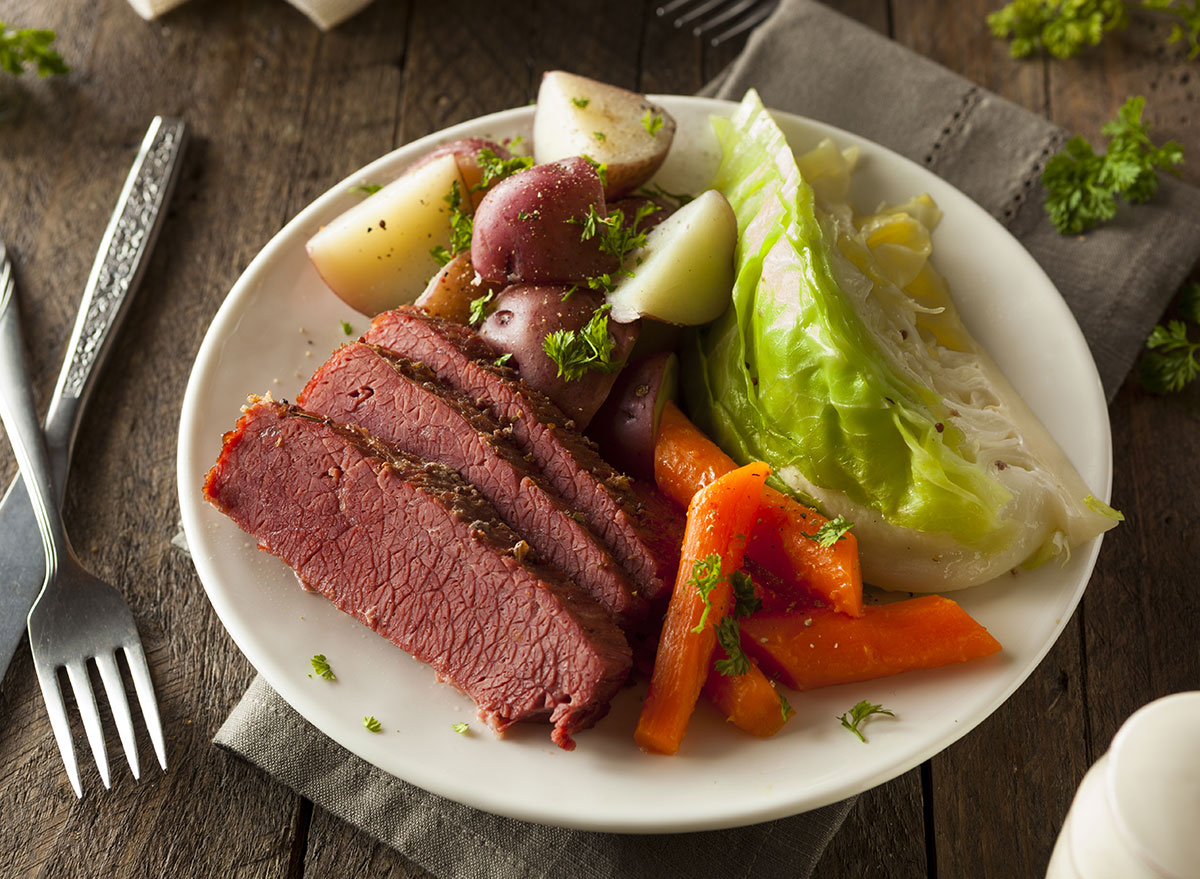

Corned beef might be a great staple at St. Patrick’s Day brunch, but try not to make a habit of it. It’s another kind of processed meat that should be avoided if you have a family history of cancer.
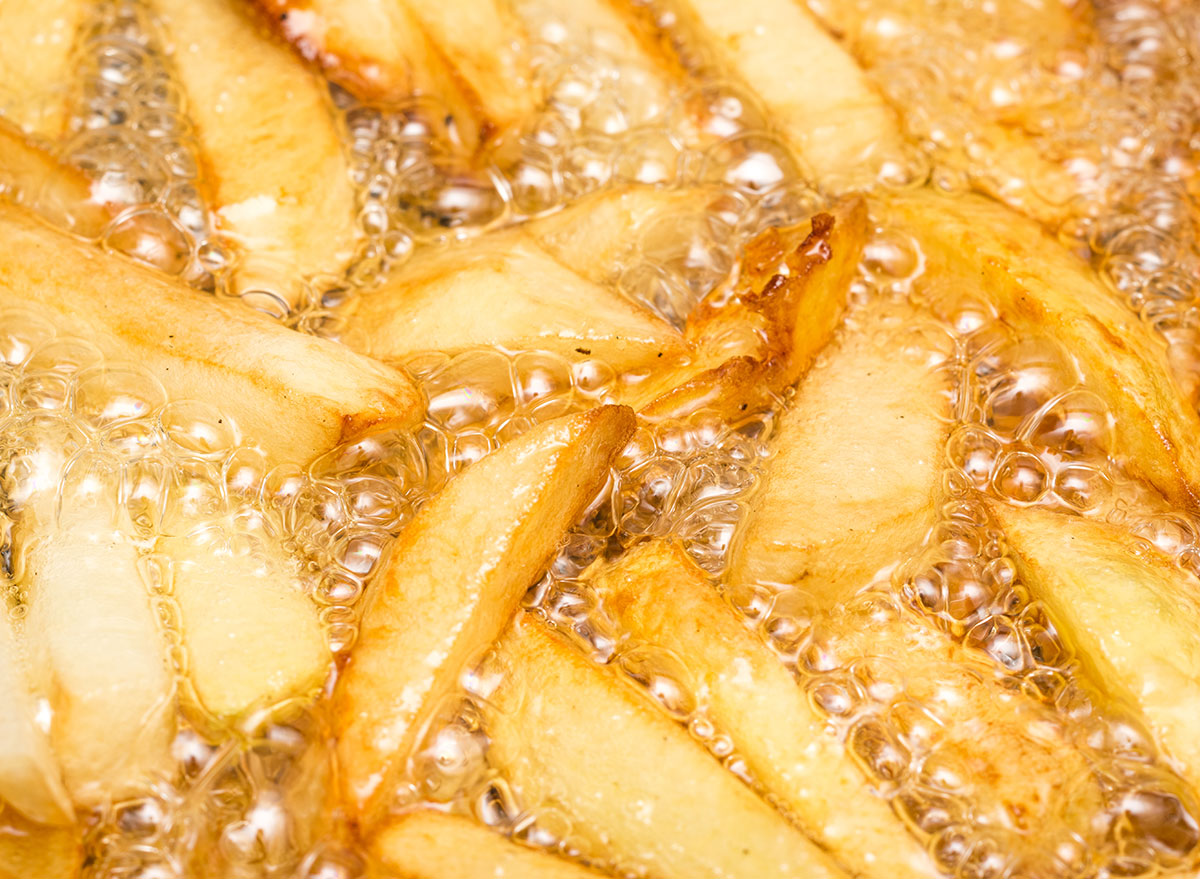

“Fried foods that have been fried in oil past its smoke point can also create carcinogenic compounds,” says Lisa Richards, a nutritionist and author of The Candida Diet. “These are substances that promote the formation of cancer.”
It hurts our hearts to say it, but that includes fries, as well as other kinds of fried foods.
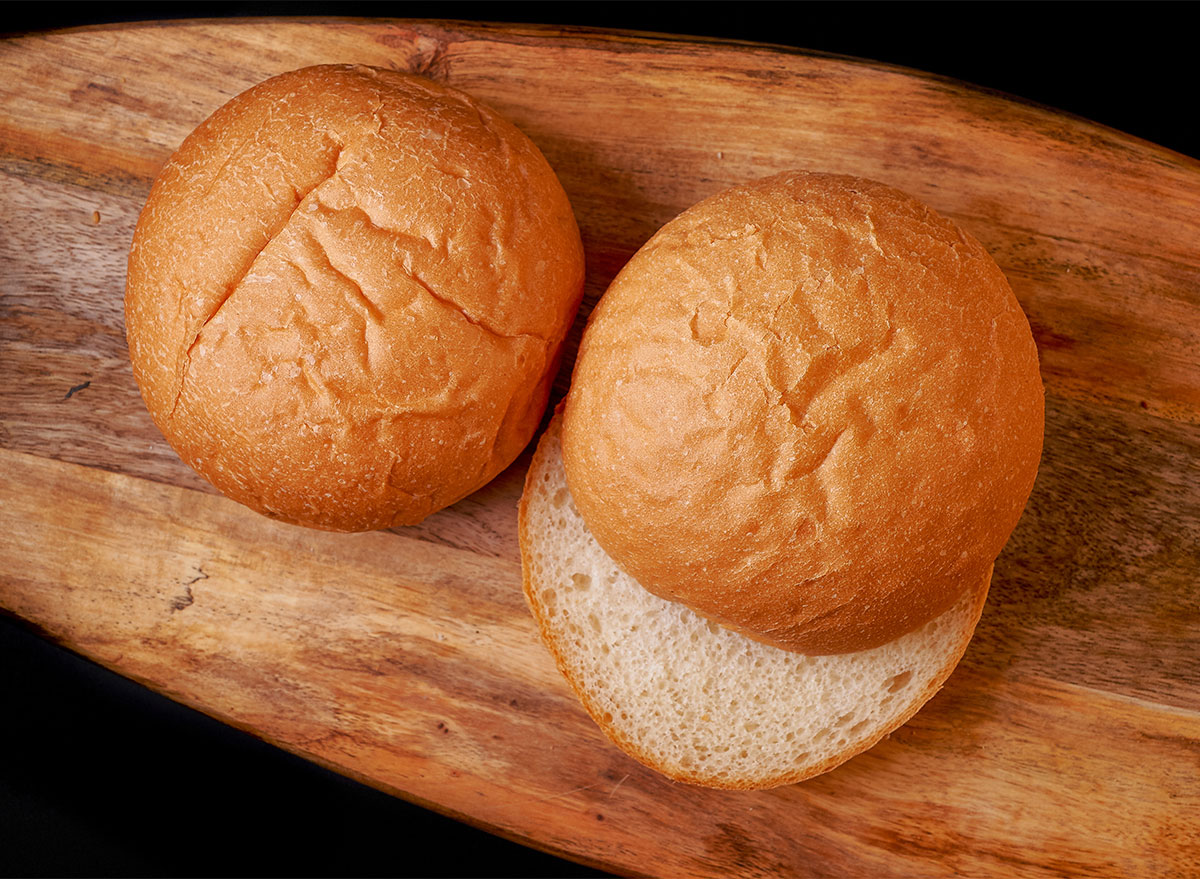

Whenever possible, it’s not a bad idea to avoid the hamburger (or cheeseburger) roll. Sure, the roll tastes good, but there are many alternatives to burger buns. A portobello mushroom or a lettuce “bun” can easily take the place of a roll. Plus, by subbing out a roll for a veggie option like lettuce or mushrooms, you’ll be getting less sodium and more nutrients.
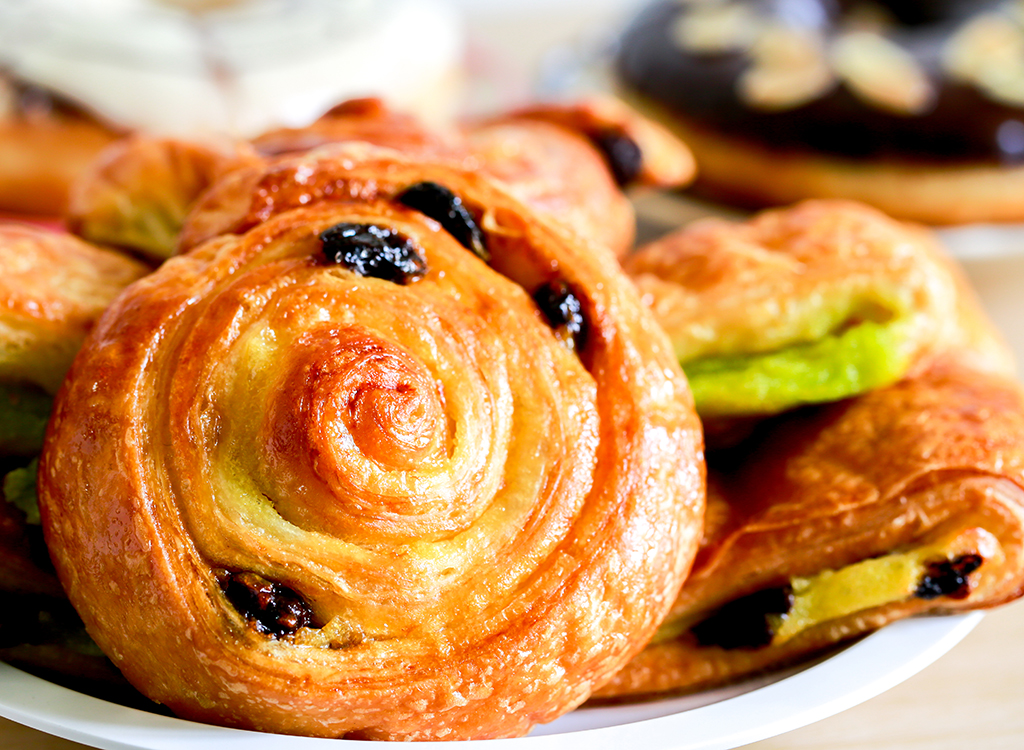

Sugar and refined carbohydrates can also cause cancer. Since pastries often include both, you may want to skip the trip to the local bakery.
“Foods high in refined carbohydrates — not just sugar — cause inflammation in the body, along with gut dysbiosis, both of which are linked to an increased risk of cancer,” Richards says.


According to Richards, donuts are also high in sugar and refined carbohydrates, which means they could potentially cause the development of cancer.
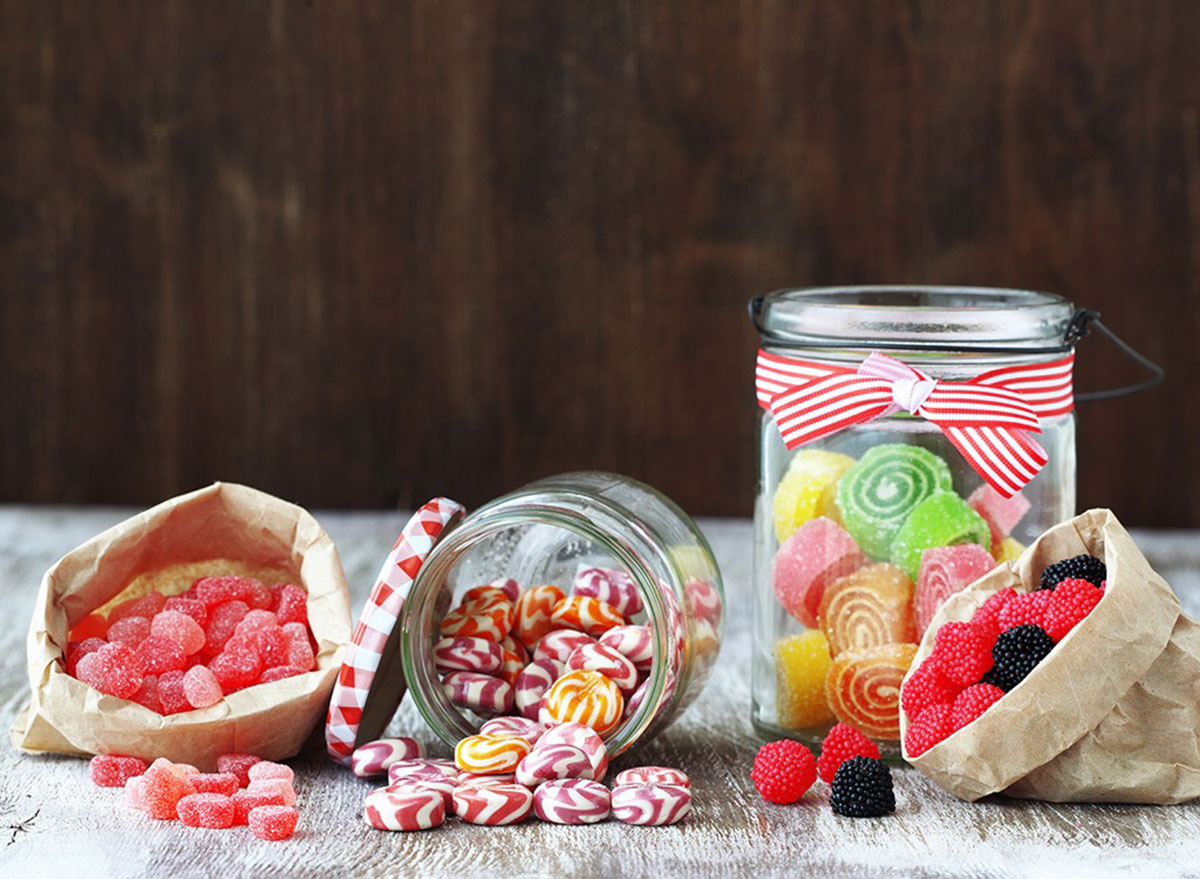

Add candy to that list, Richards says. Candy, along with pastries, donuts, and enriched breads, can increase your risk of both cancers and gut dysbiosis because of how they inflame the internal body.
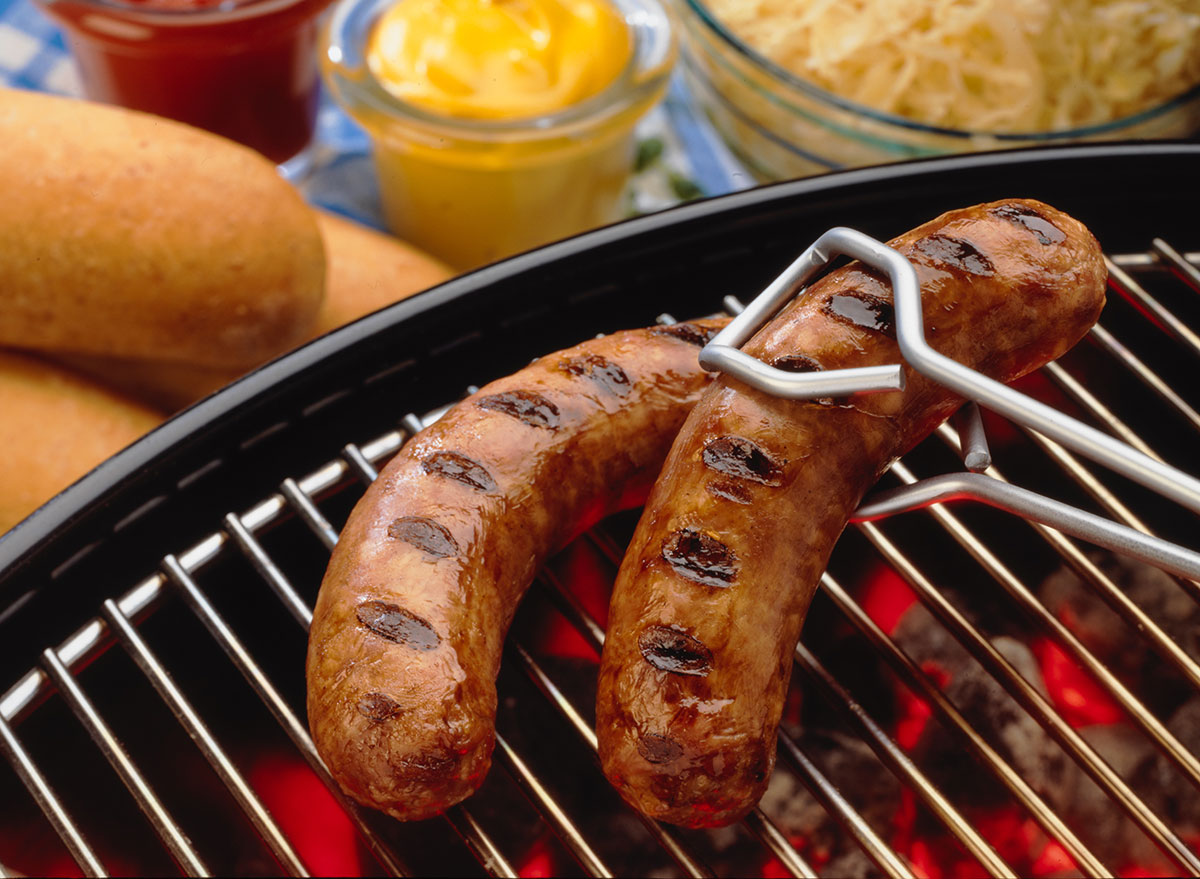

Another great pizza topping, sausage is unfortunately another kind of processed meat that can increase your risk of bowel cancer. When in doubt, avoid it.
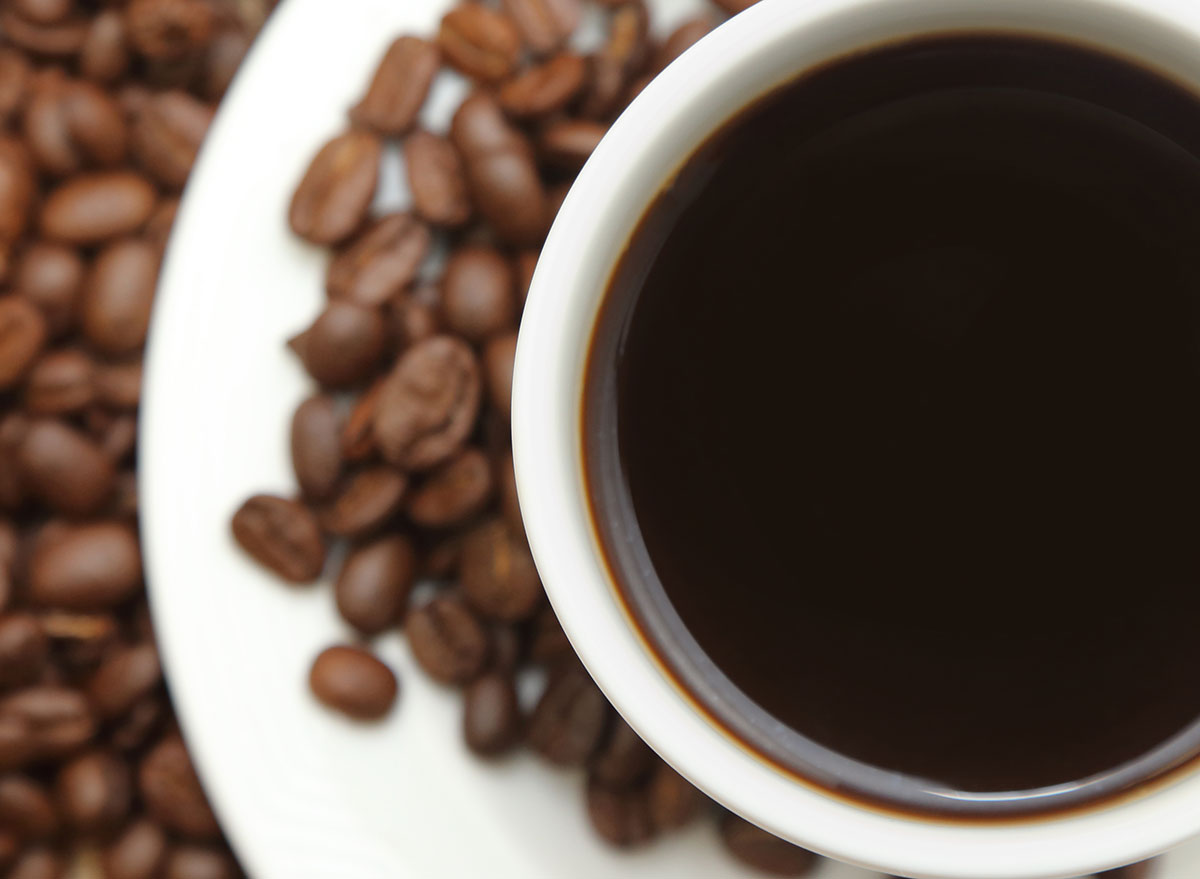

According to Dr. Christian Gonzalez, naturopathic doctor, integrative oncology practitioner, and non-living expert, the jury is still out on coffee. Even so, it’s best to practice moderation, especially if your family has a history of developing cancer.
“Multiple studies have shown a protective effect in colorectal, oral, liver, breast, skin, endometrial, prostate, and ovarian cancers,” says Dr. Gonzalez. But there’s some evidence that suggests otherwise, hence the controversy. “There’s conflicting evidence when it comes to bladder, pancreatic, and gastric cancers, whereas the Lung Cancer Association is more consistent.”
Dr. Gonzalez’s recommendation? Moderation.
“There is abundant data on coffee, some encouraging, others slightly concerning,” Dr. Gonzalez says. “My recommendation is practicing moderation. If you are depending on coffee, it’s time to practice other approaches to self-care . . . Choose organic [coffee] if possible, caffeinated, low/no sugar, and alternative milks [to cow’s milk] only.”
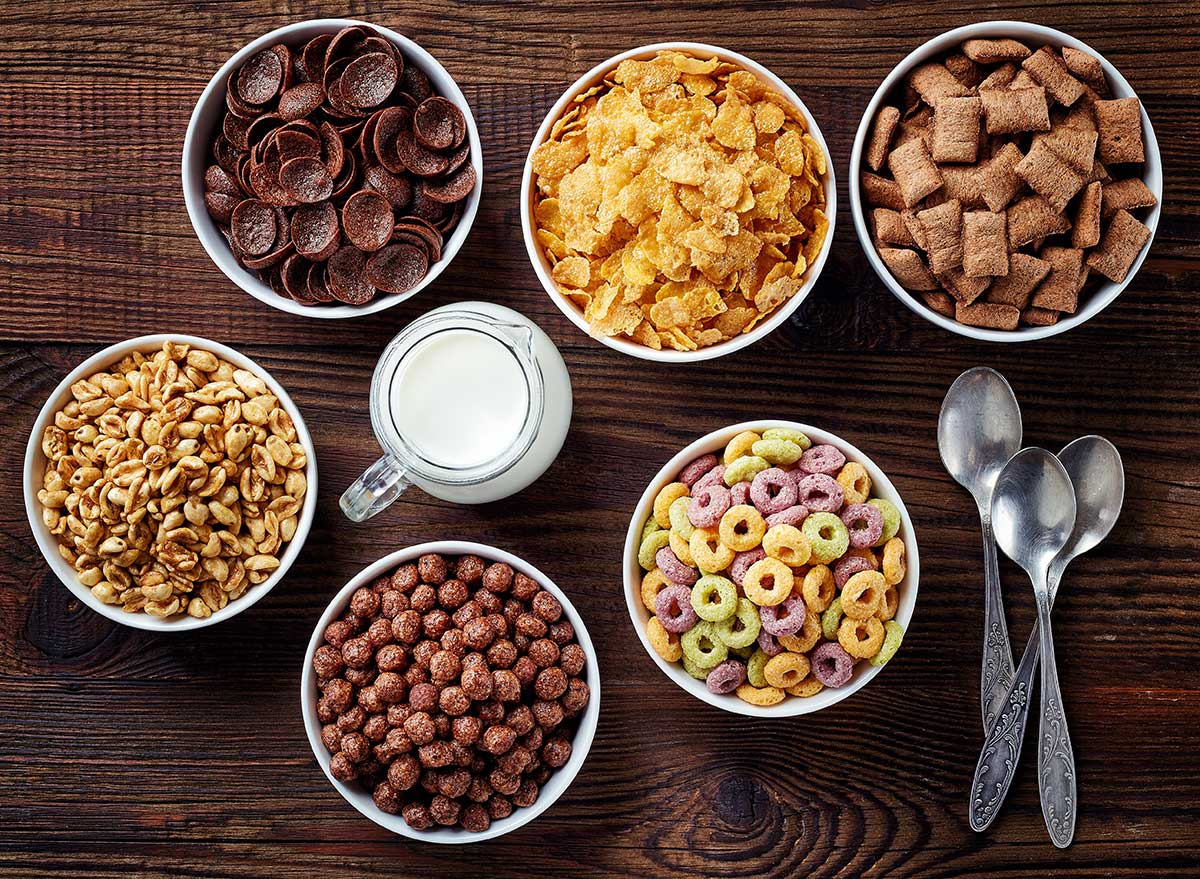

Of course, it depends on the breakfast cereal. You’ll have to check your labels before buying or eating, but breakfast cereals can actually be secret sodium bombs. Did you know that the average American consumes more than 3,000 milligrams of sodium per day? The average person is only supposed to have about 500 milligrams daily, which means Americans are really overdosing on sodium. Surprisingly, some breakfast cereals — like corn flakes, for example — use high levels of sodium as preservatives to make them last longer. Our advice? Steer clear.
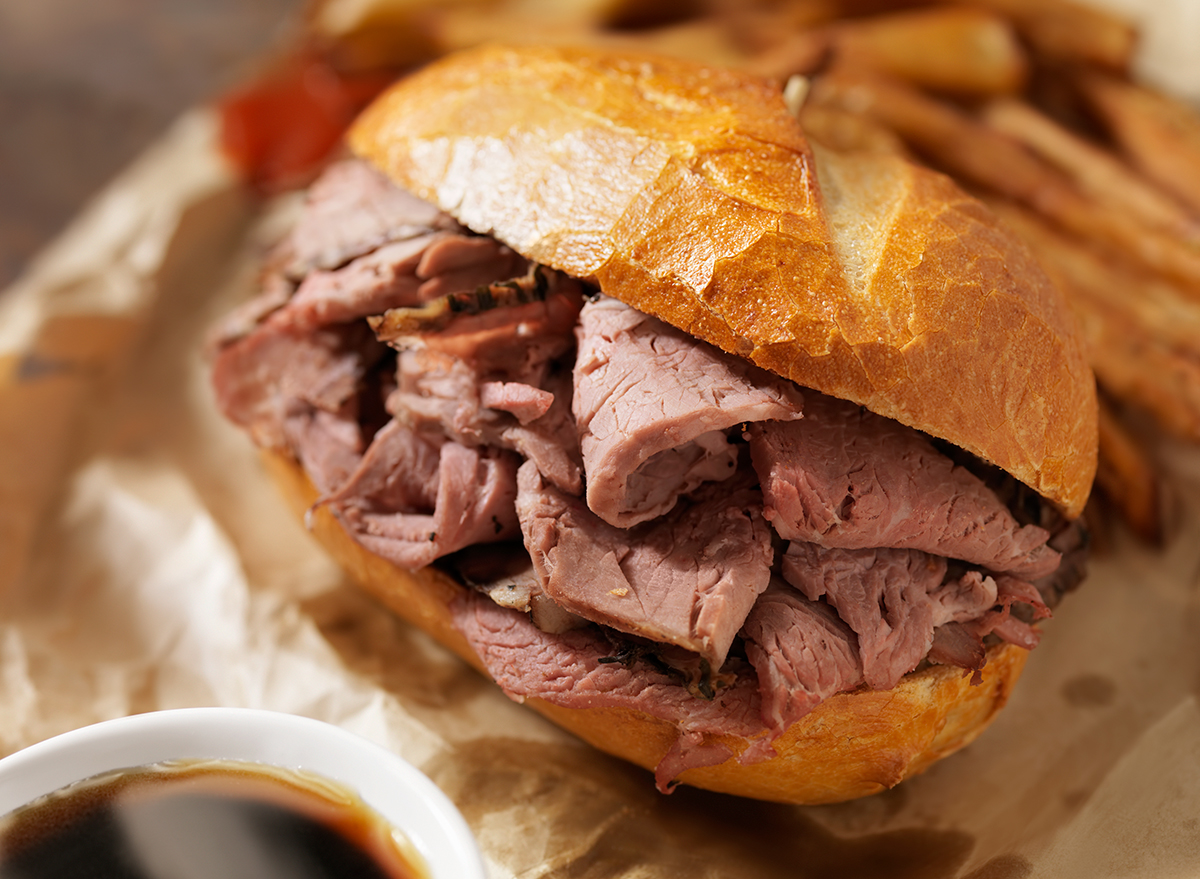

It may be a delicacy, but sadly, it’s a processed meat. You know what that means — significant increase in cancer risk.
“While there is strong evidence linking red meat consumption to an increased risk for colorectal cancer, the association between red meat consumption and other types of cancers is mixed,” Milliron says. “A conservative approach might be to reduce your intake of red meat if you typically eat it on most days of the week.”
While you don’t necessarily have to get rid of meat completely, your risk might go down if you cut out most processed meats and red meats.
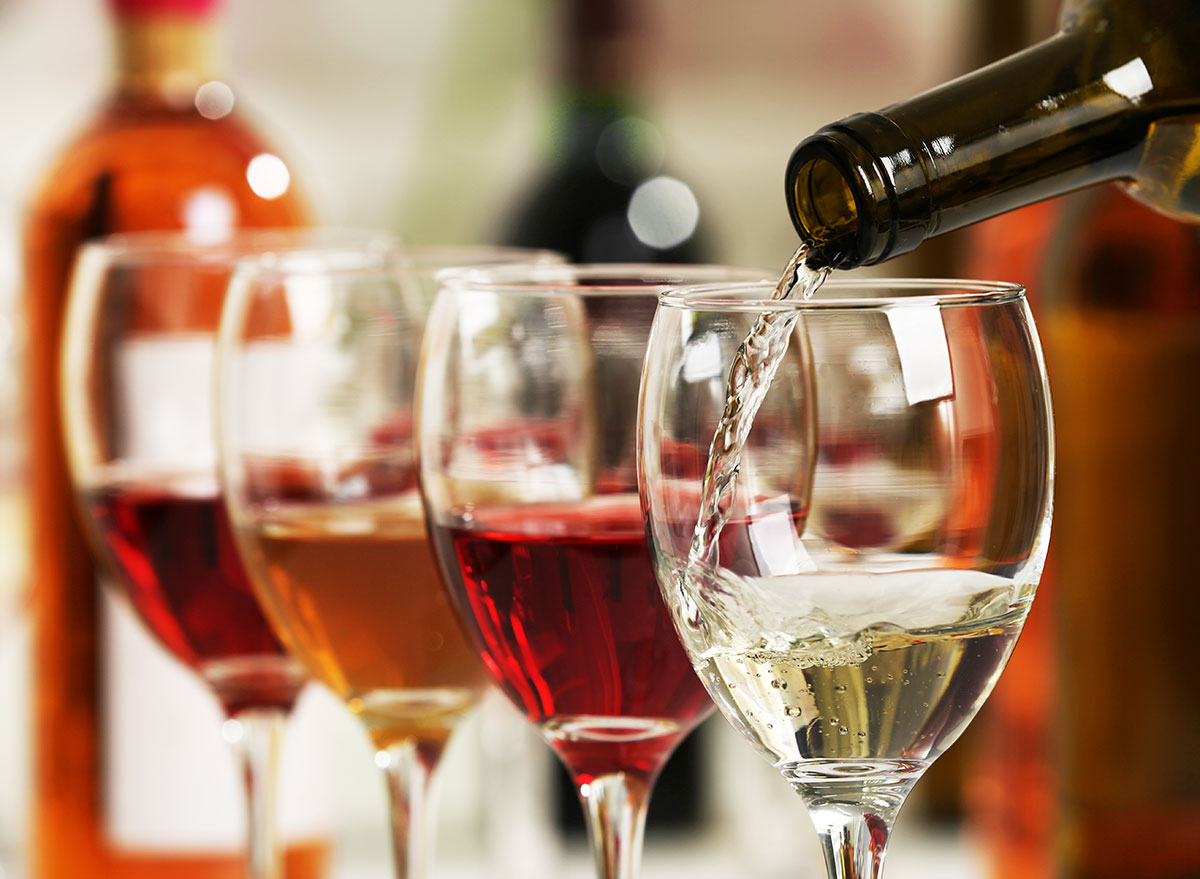

Like beer and hard liquor, wine can also increase your risk of breast cancer and other cancers. In fact, having a few glasses of wine exponentially increases your risk. And it’s not so much the number of glasses you have but rather the frequency. The more frequently you drink wine, the more your risk of developing a type of cancer increases.
“Drinking alcoholic beverages (no matter the form—beer, wine, or liquor) can increase a person’s risk for some types of cancer,” Milliron says.
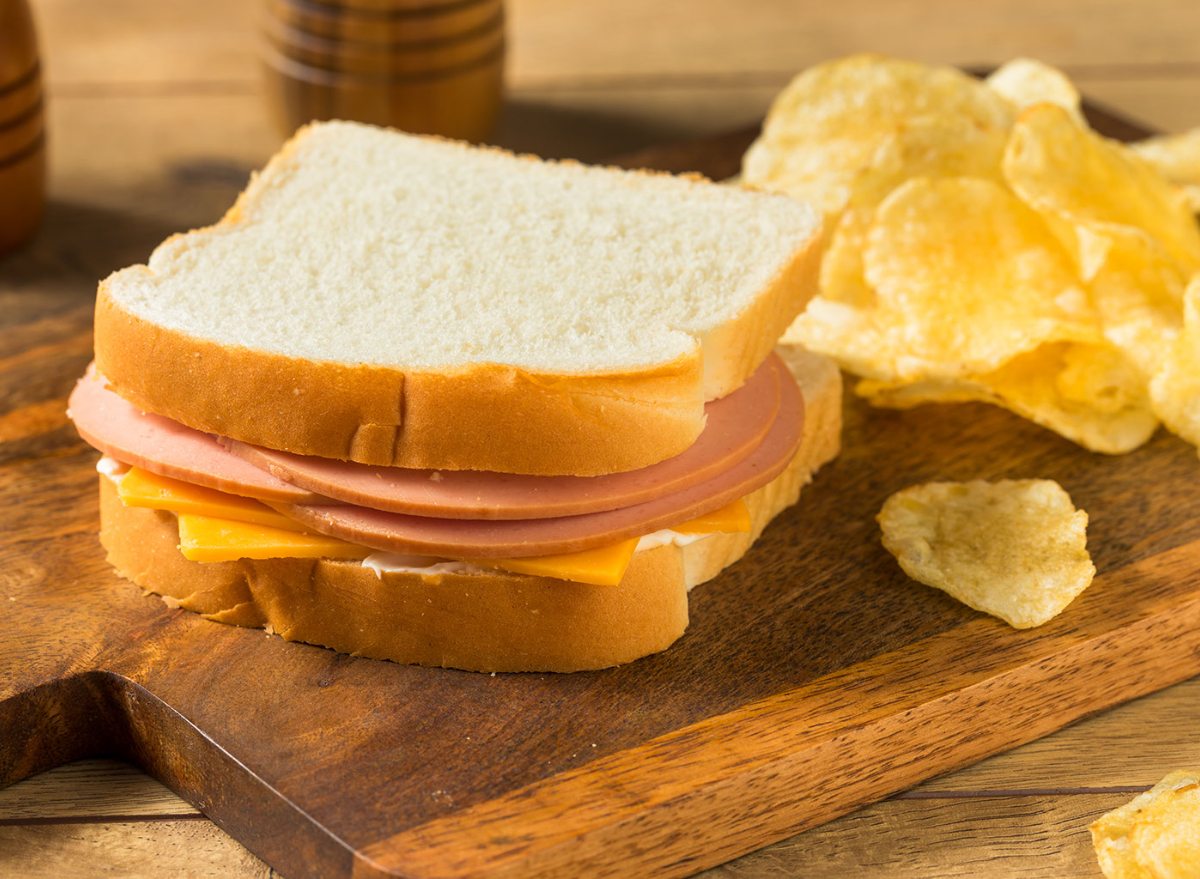

No more bologna sandwiches, if you can help it. Bologna is a super processed meat that’s full of high salt and fat contents, with little other nutritional value.


Salt with a side serving of meat. If you have a family history of cancer, it’s for sure in your best interest to avoid pancetta.
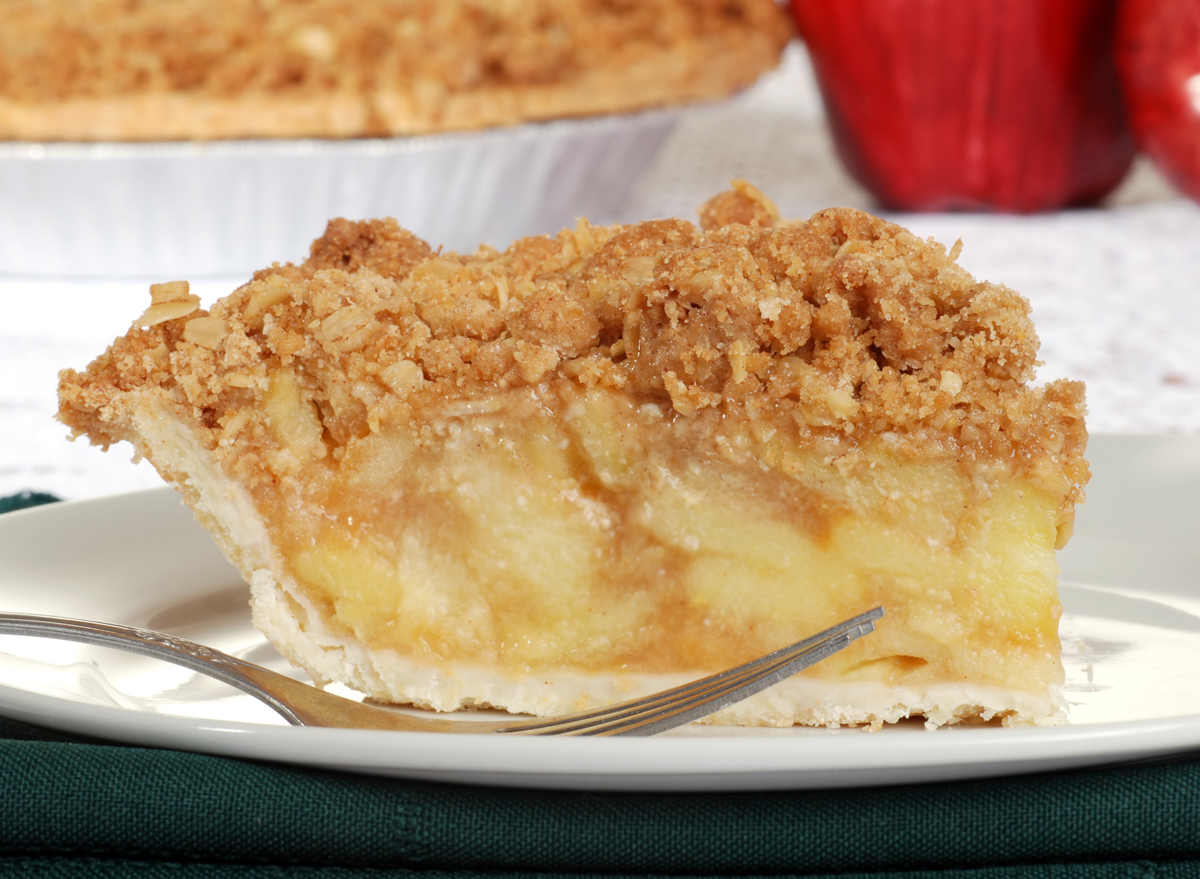

Same issue as pastries — all the sugar and all the refined carbohydrates.
“In moderation, [pies] can be part of a healthy diet,” says Shena Jaramillo MS, RD, a registered nutritionist and dietician at Peace and Nutrition. “However, add too much and we are typically adding heaps of hydrogenated oils, saturated fats, and trans fat to [our] diet. These types of fats cause rigid phospholipid bilayers in our cells and make it difficult for our bodies to function properly at the cellular level.”
Trans fats are still creeping their way into your meals. Need proof? Here are the 30 Sneaky Restaurant Foods With the Most Trans Fat.
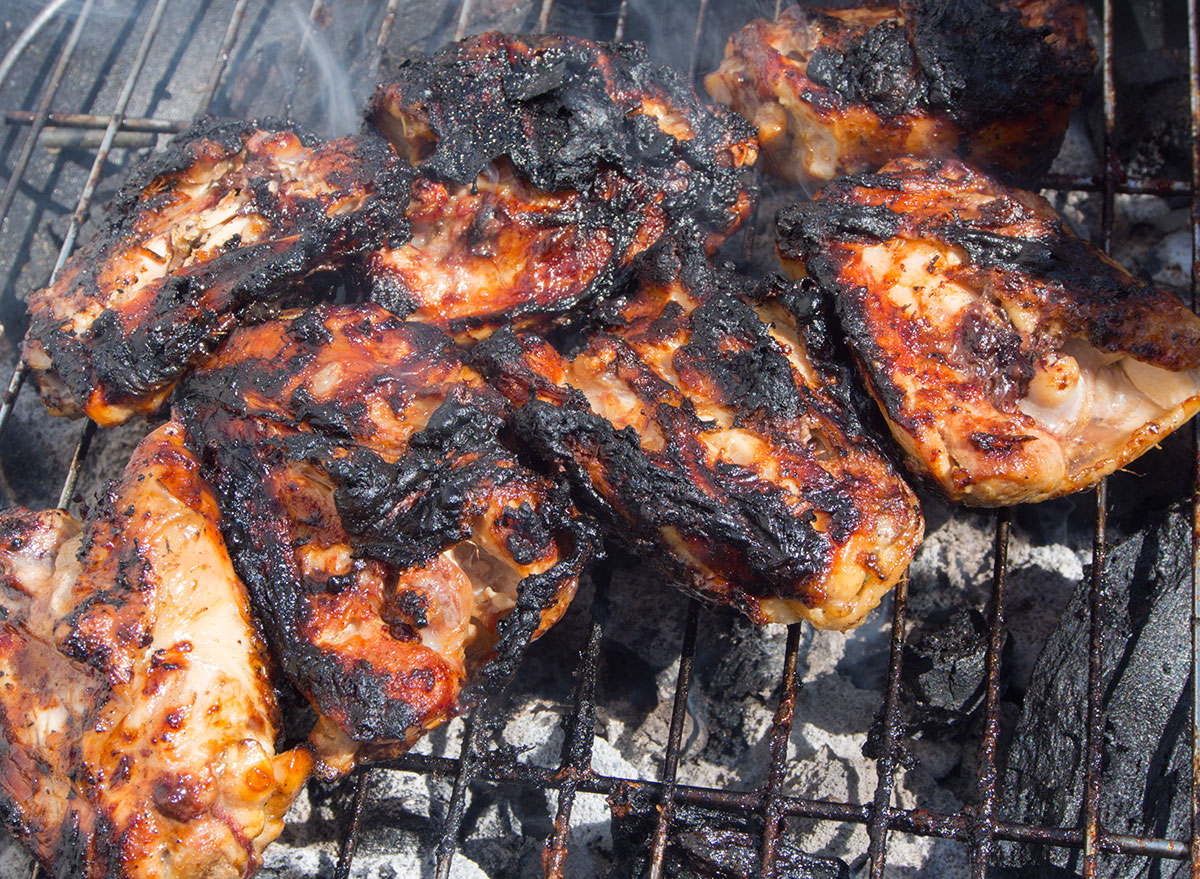

Sure, red meats and processed meats are foods to watch if you have a family history of cancer, but really, any meat cooked at super high temperatures could be carcinogenic. High temps can cause the release of dangerous chemicals that can alter your DNA, causing mutations.
And it’s no specific kind of meat — any meat that is barbecued, fried, charred, cooked well-done or is a risk. Instead, CancerCenter.org suggests baking, boiling, or braising your meats.
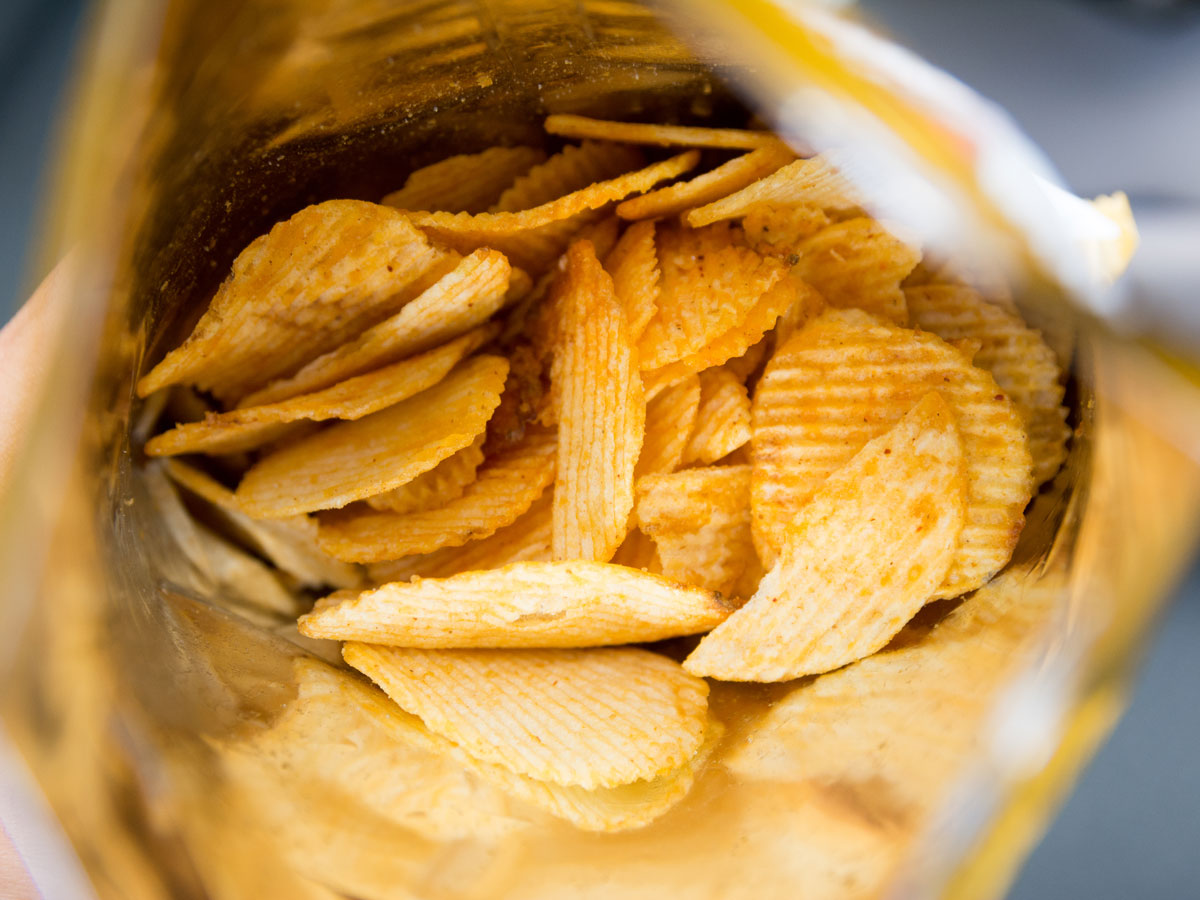

There are so many dangerous additives, preservatives, and ingredients in processed and packaged foods that there are too many to name. This includes everything from some chips, fruit snacks, microwavable popcorn, etc.
These heavily processed and packaged foods can cause a chemical compound called PCP, which is a known carcinogen. Some of these foods—like microwavable popcorn, for example—could also have dangerous chemicals lining their packaging. When popcorn gets heated up in the microwave, those chemicals, which could be carcinogens, may leak into your food.
Yuck!
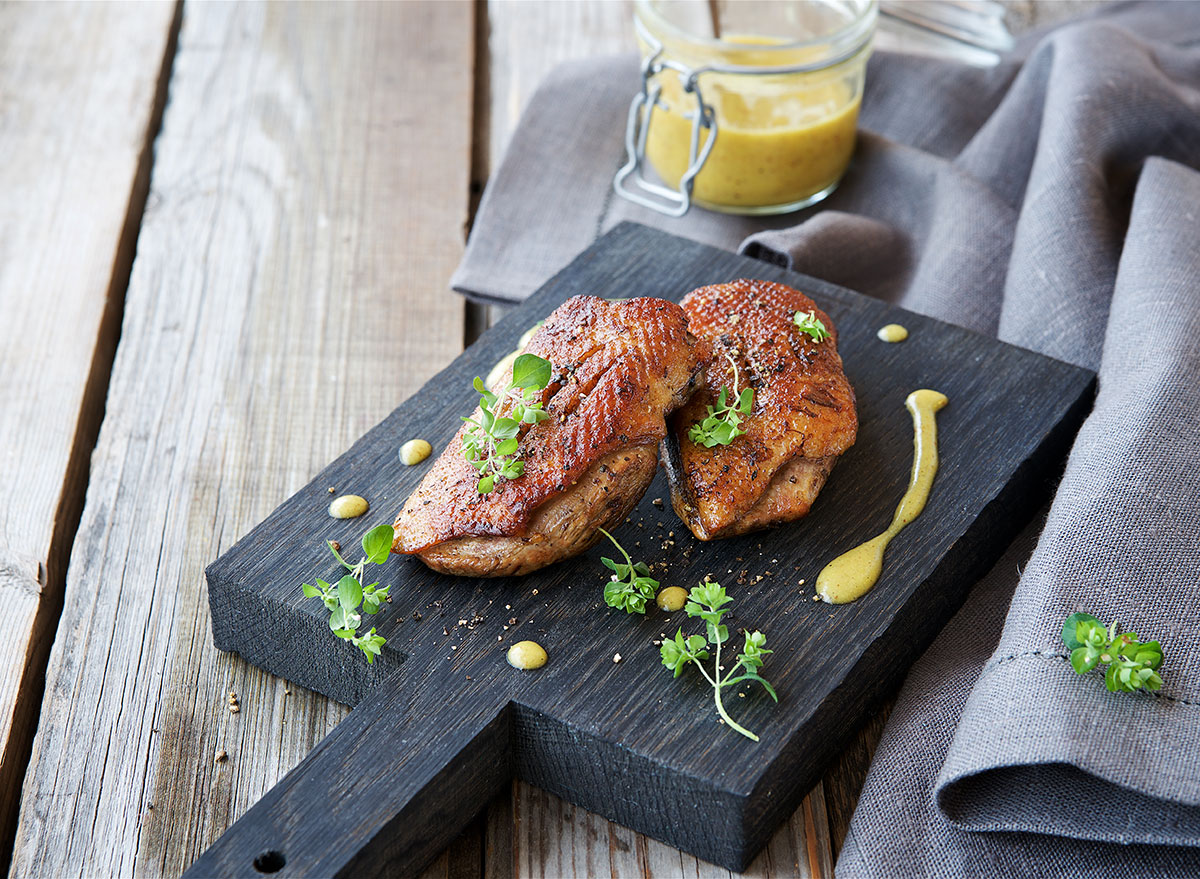

Duck is in a similar category to venison. While many people don’t consider duck a type of red meat, eating it has definitively been associated with increased risk of colon cancer, as well as esophageal, lung, mammary, pancreatic, prostate, and stomach cancer.
When in doubt? Avoid duck.


It should come as no secret that soda is significantly high in sugar. Sugar is used as a sweetener, but it can also increase your risk of as many as 13 different cancers, including breast, colon, endometrium, esophageal, gallbladder, gastric cardia, kidney, liver, ovarian, pancreatic, rectal, and thyroid cancer.
“The link between drinking sugar-sweetened beverages and sugar, in general, is the following,” Milliron says. “Research shows that eating foods that are high in sugar, including sugar-sweetened beverages, increases a person’s risk for unhealthy weight gain [and] excess body fat is a strong risk factor for at least 13 different types of cancer.”


This one stings. Bacon is undeniably delicious, especially on a Sunday morning with scrambled eggs. But if you can limit your bacon intake, it’s definitely in your best interest. Also considered a processed meat, bacon has a lot of fat, a lot of salt, and little else going for it. Here are 41 More of the Worst Breakfast Foods On The Planet you should also steer clear of.
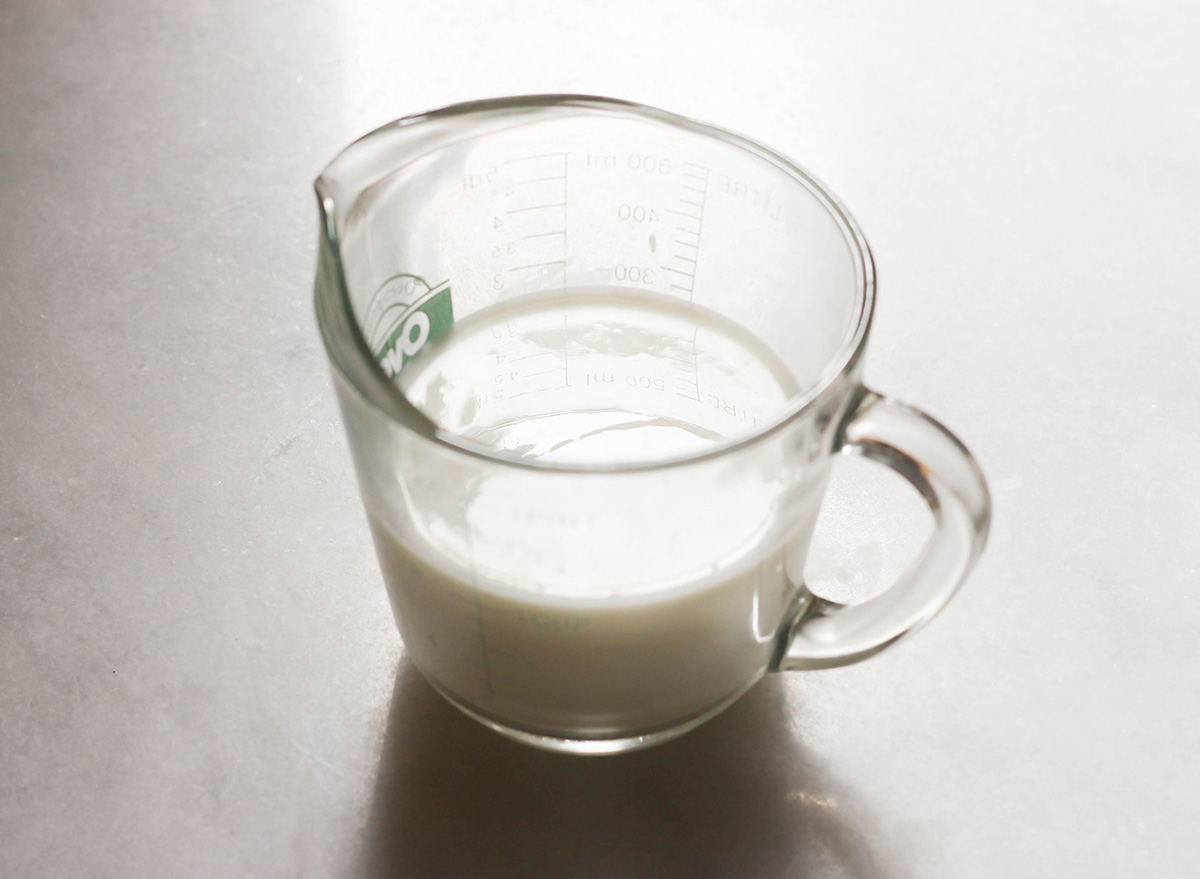

It’s surprisingly super high in sodium. Our best advice? Avoid.
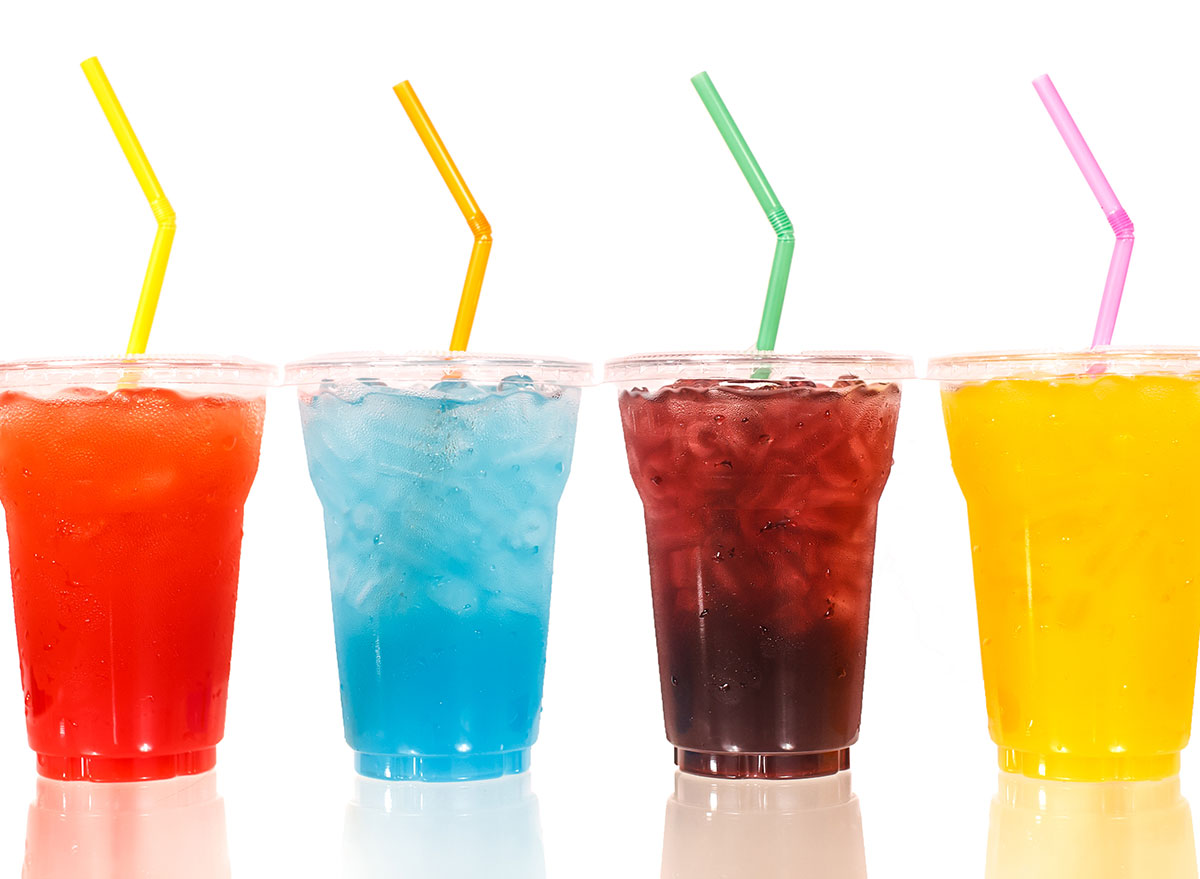

It’s not just soda that’s a cancer concern. Any kind of fizzy drink that has a ton of added sugar should be avoided if you have a family history of cancer. Check the nutritional value, and make sure the added sugar content is reasonable.
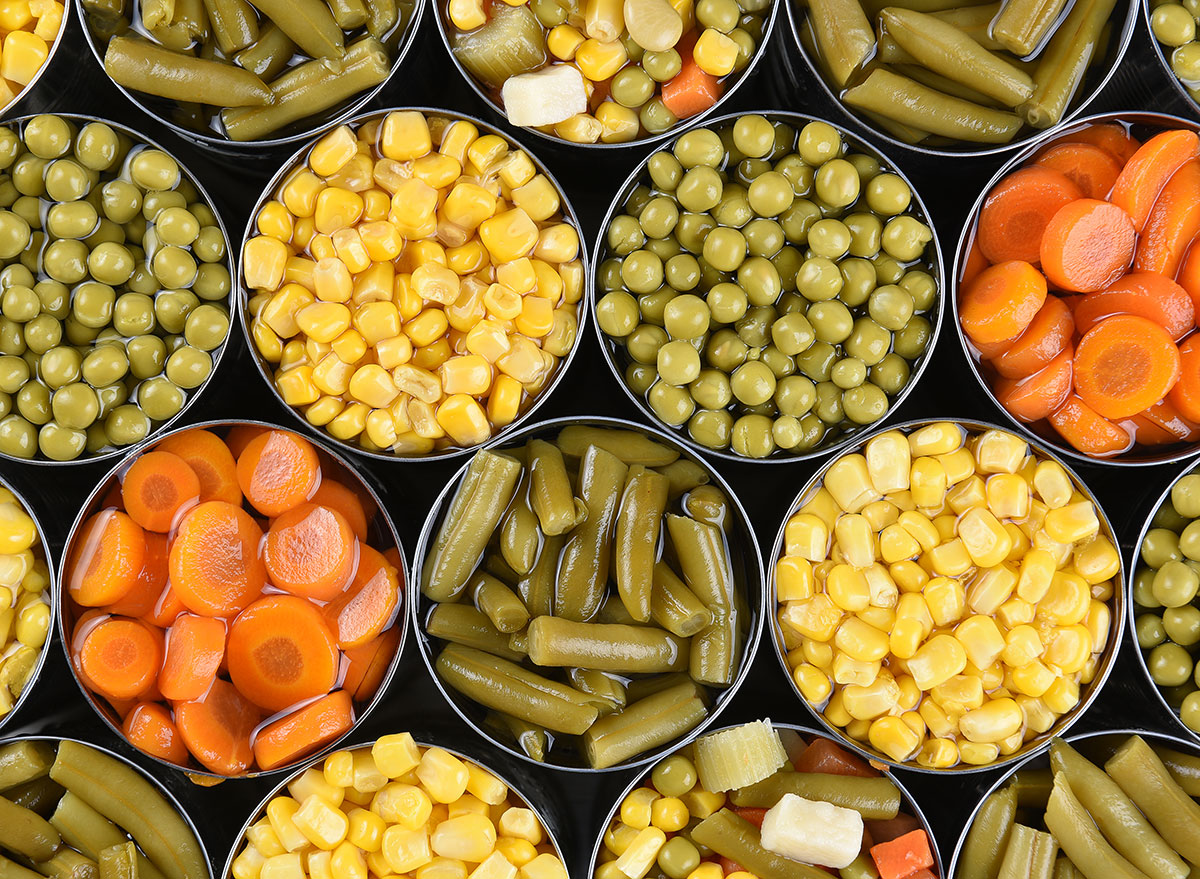

But they’re vegetables, right?! Wrong. “Canned” makes all the difference because food companies actually add preservatives and additives to make canned foods last longer. Additives and preservatives often mean added sodium, which is linked to stomach cancer.
If you do have to buy canned vegetables, make sure to drain and rinse the veggies first in order to minimize the amount of sodium you intake.
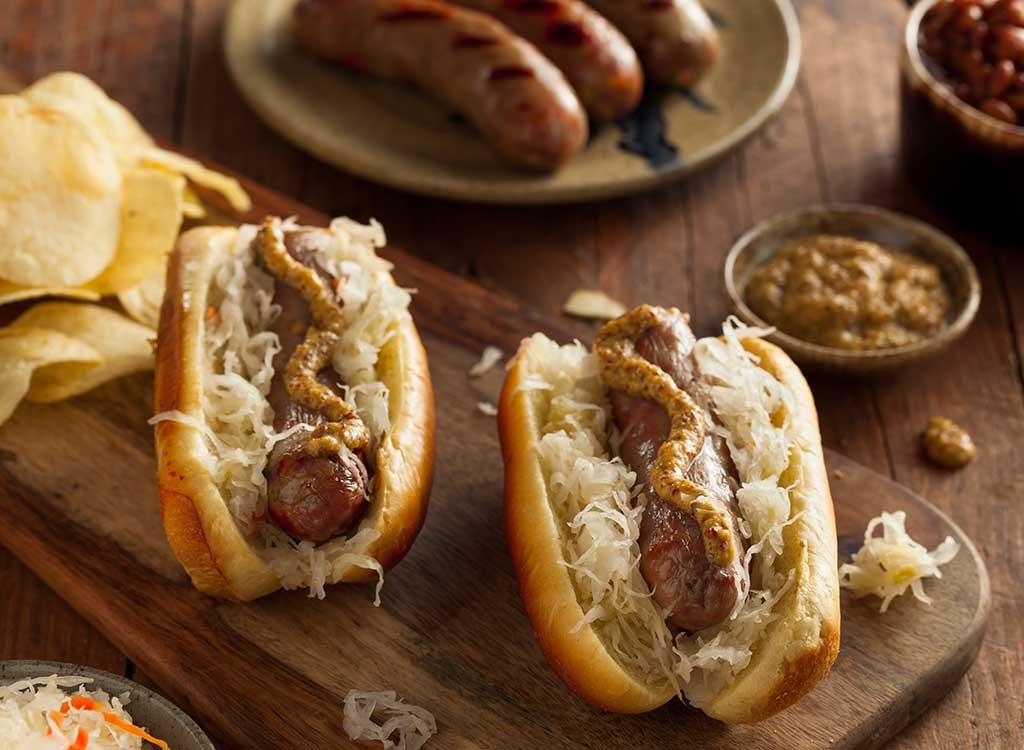

We hate to burst your bubble, but bratwurst is potentially as problematic as its other processed meat counterparts. Opt for leaner, healthier meat options instead like baked or grilled organic chicken or turkey breast; baked or grilled fish; and, of course, plant proteins.
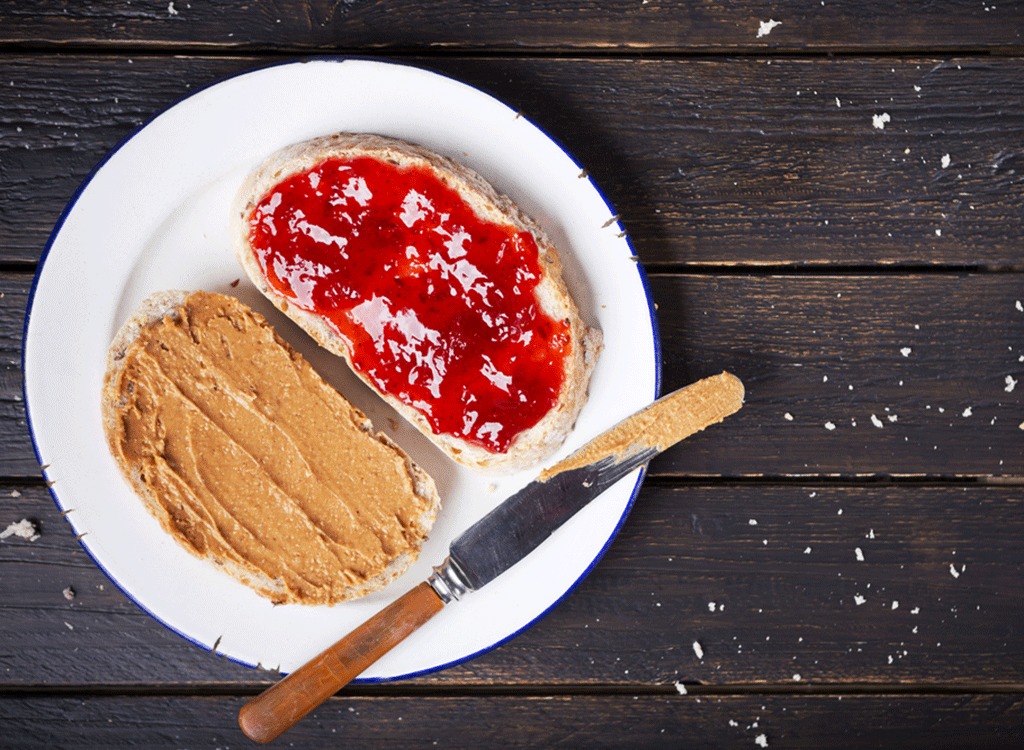

Some jellies are preserved with high levels of salt to make them last longer. Always check the sodium on the nutrition facts of your jelly before buying (or eating!). If the sodium seems unfathomably high, maybe sit this one out, as it could contribute to increased risk of stomach cancer.
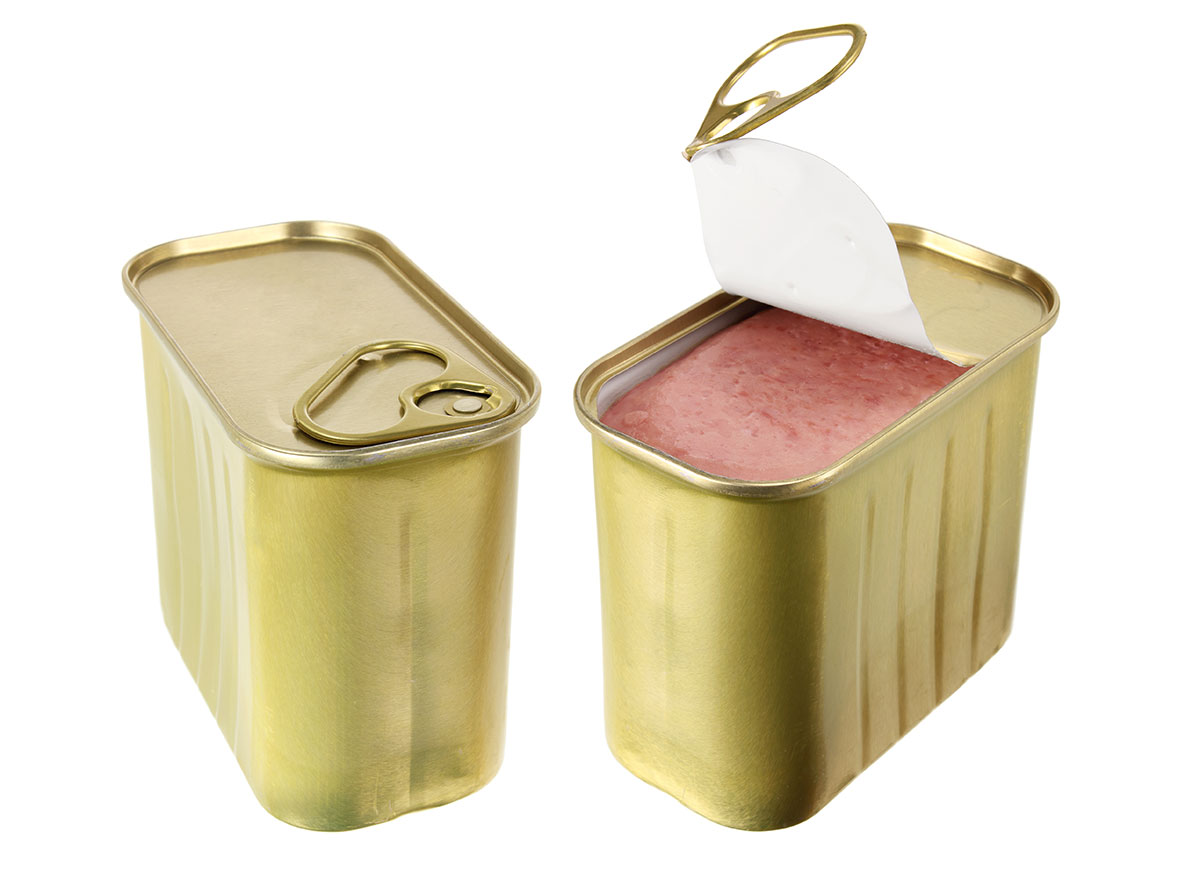

SPAM? Simply just avoid, avoid, avoid! So what should you eat instead? How about any of these foods that lower your cancer risk.
Source:





